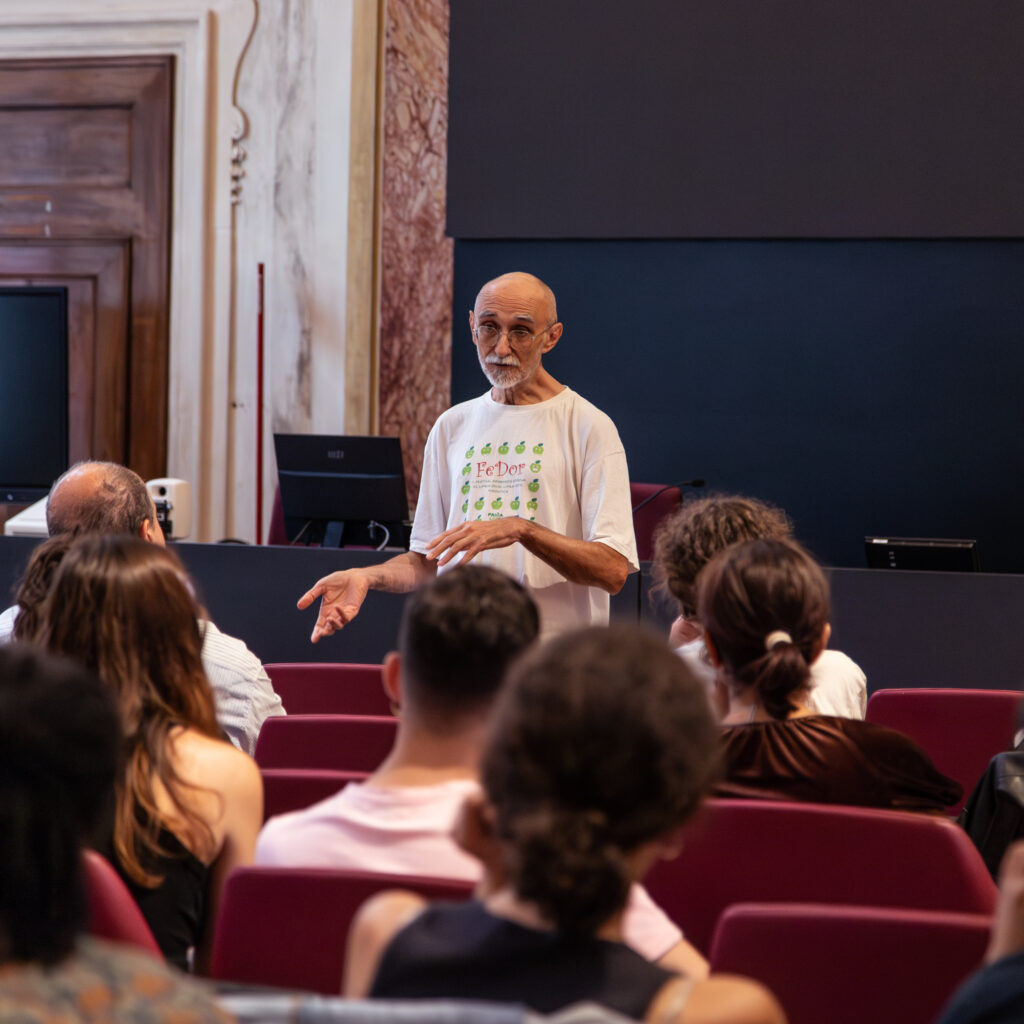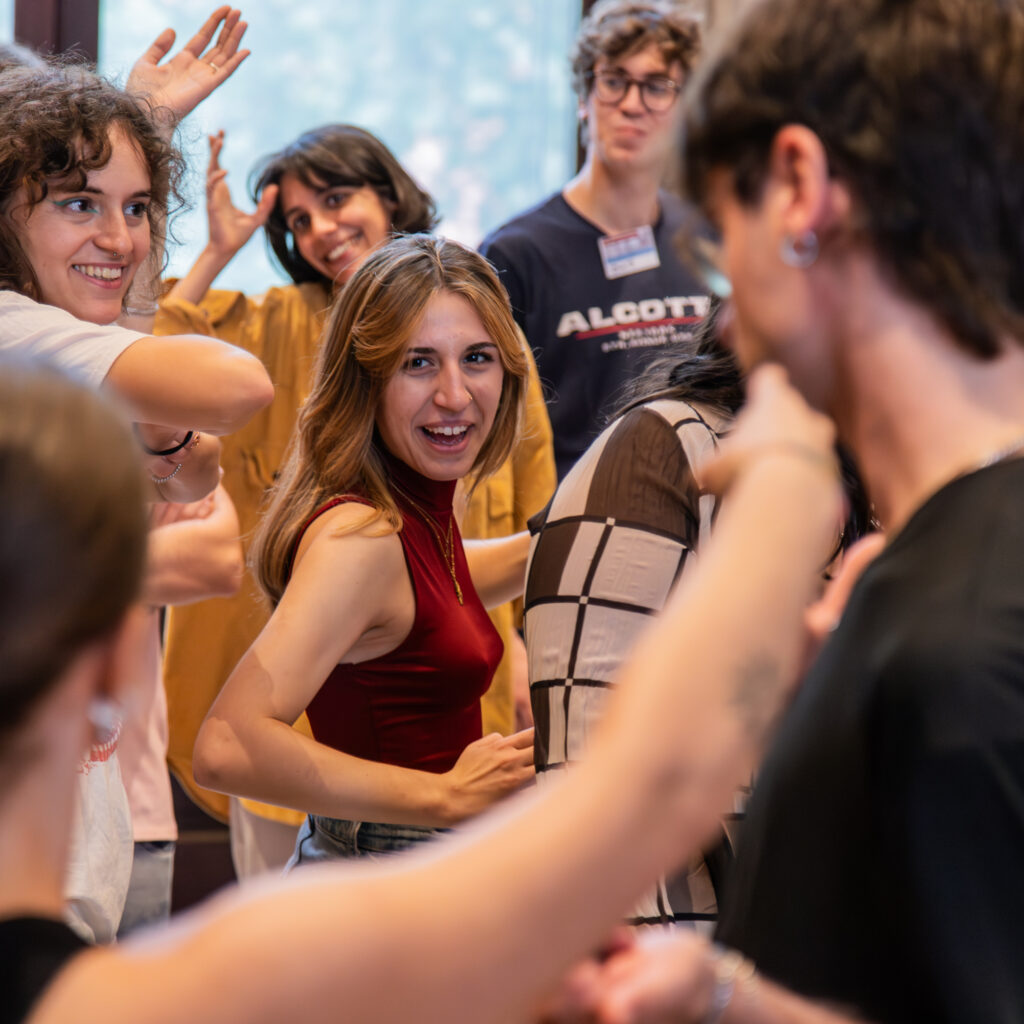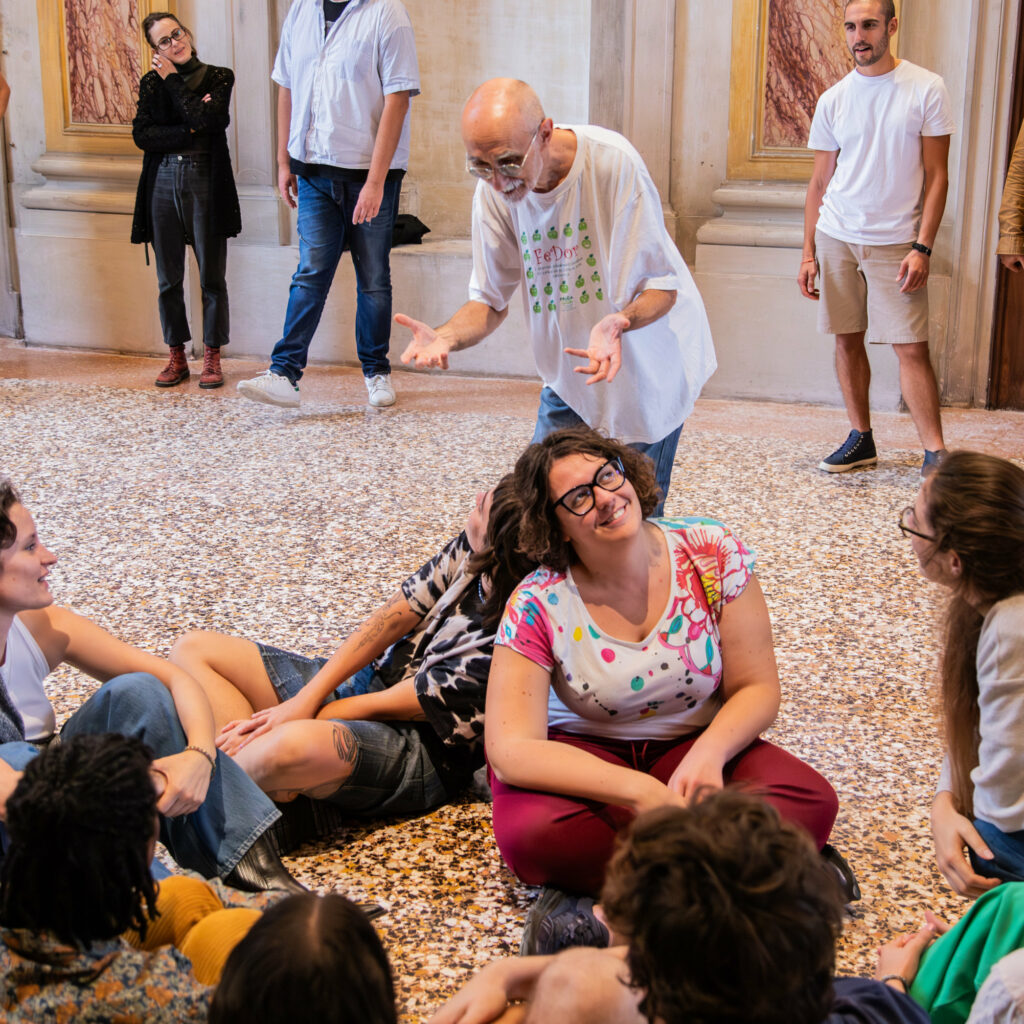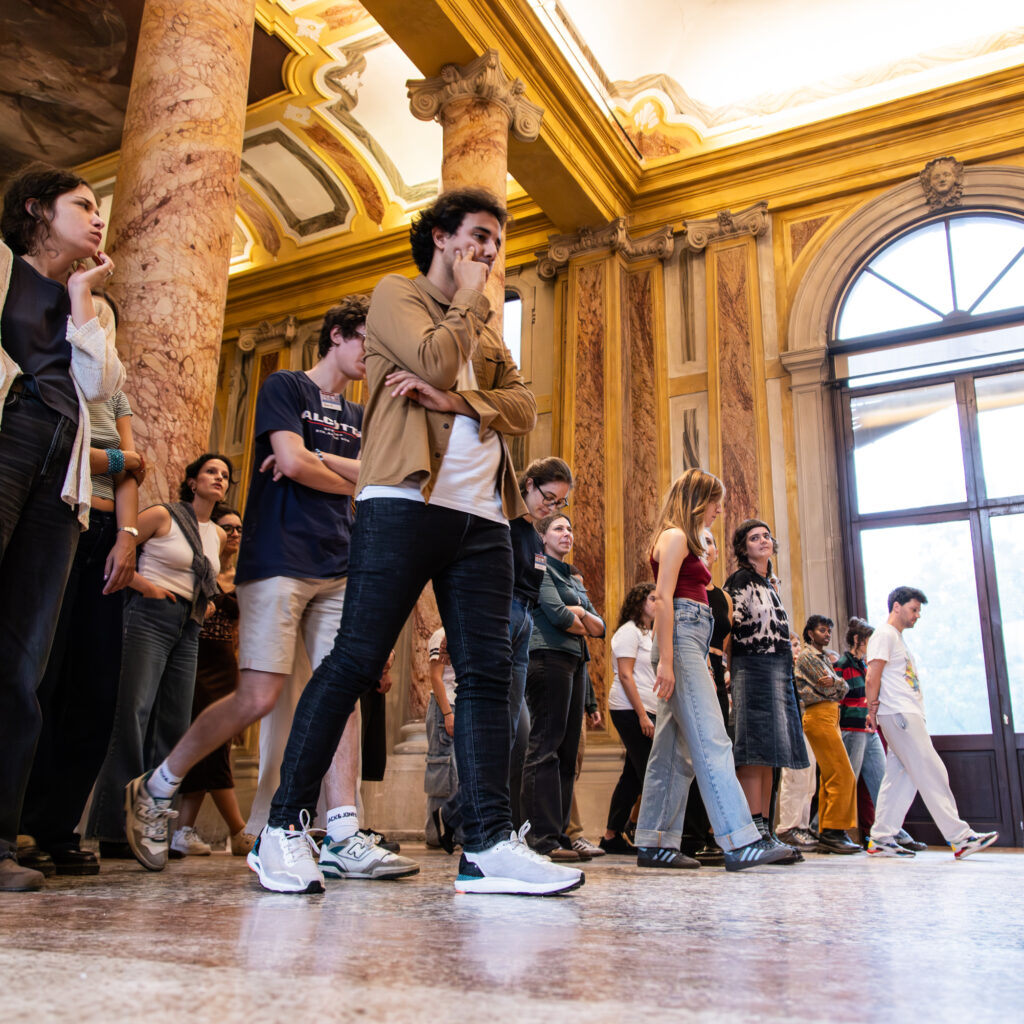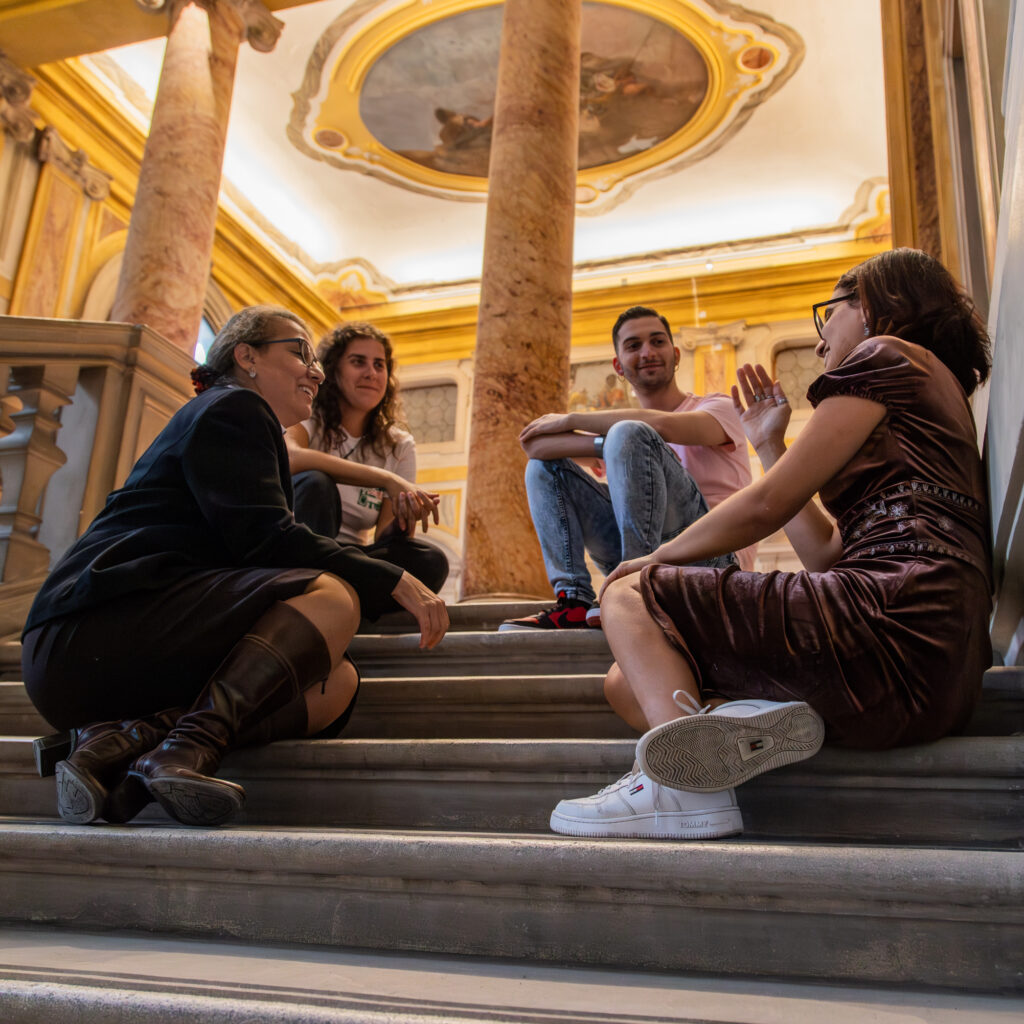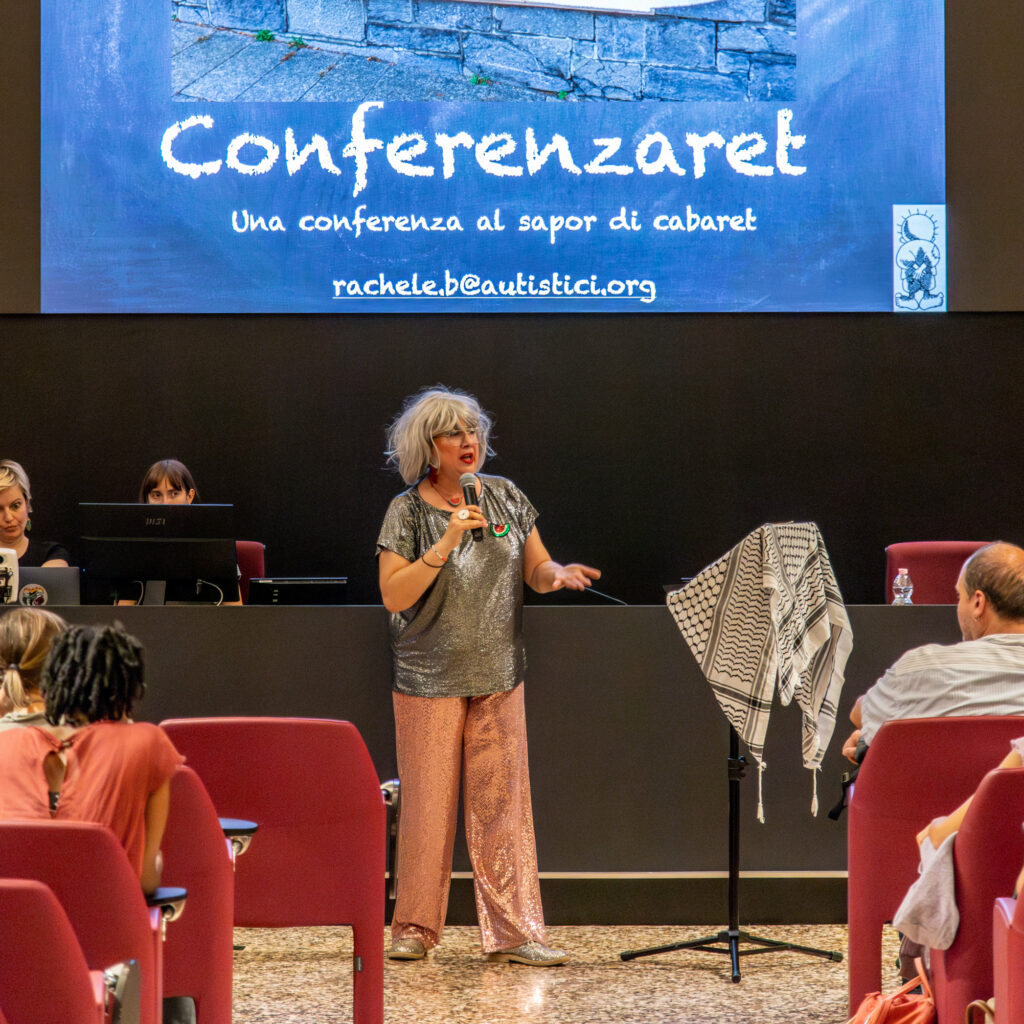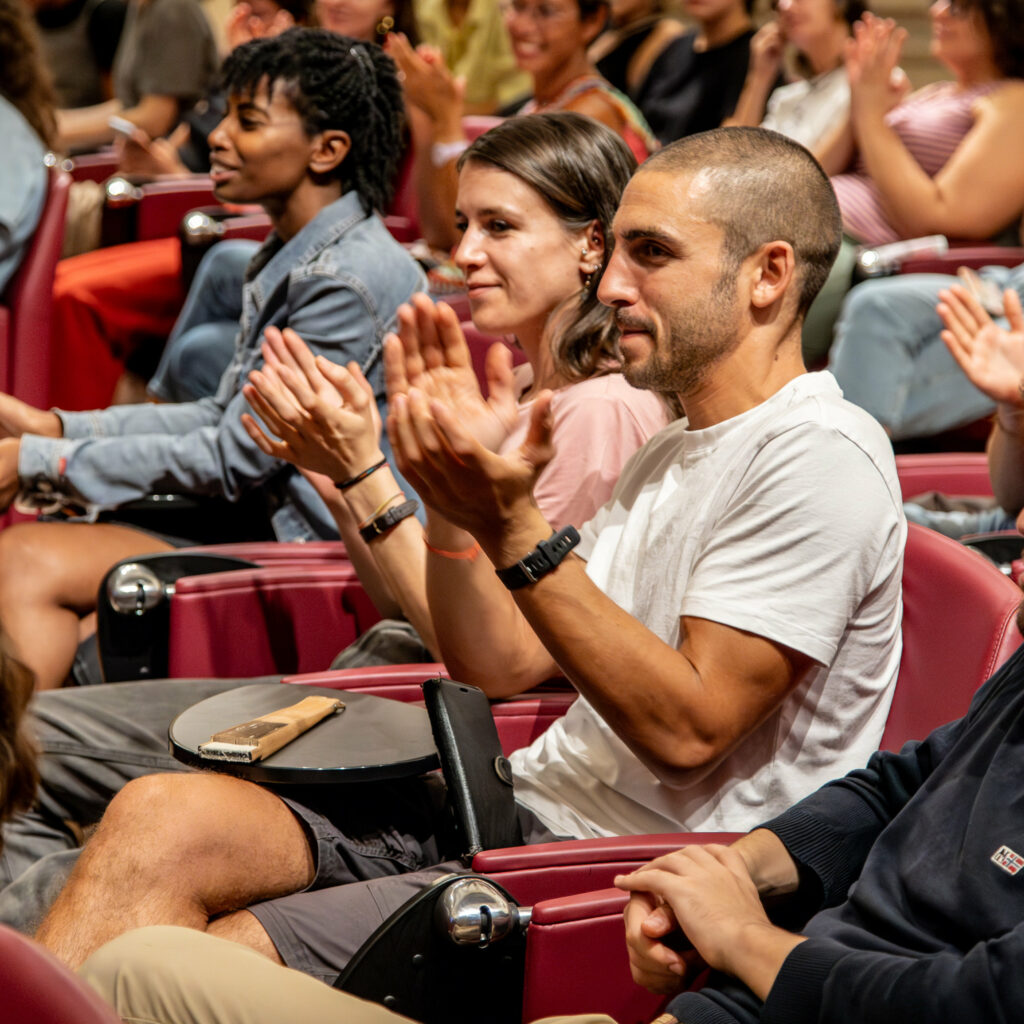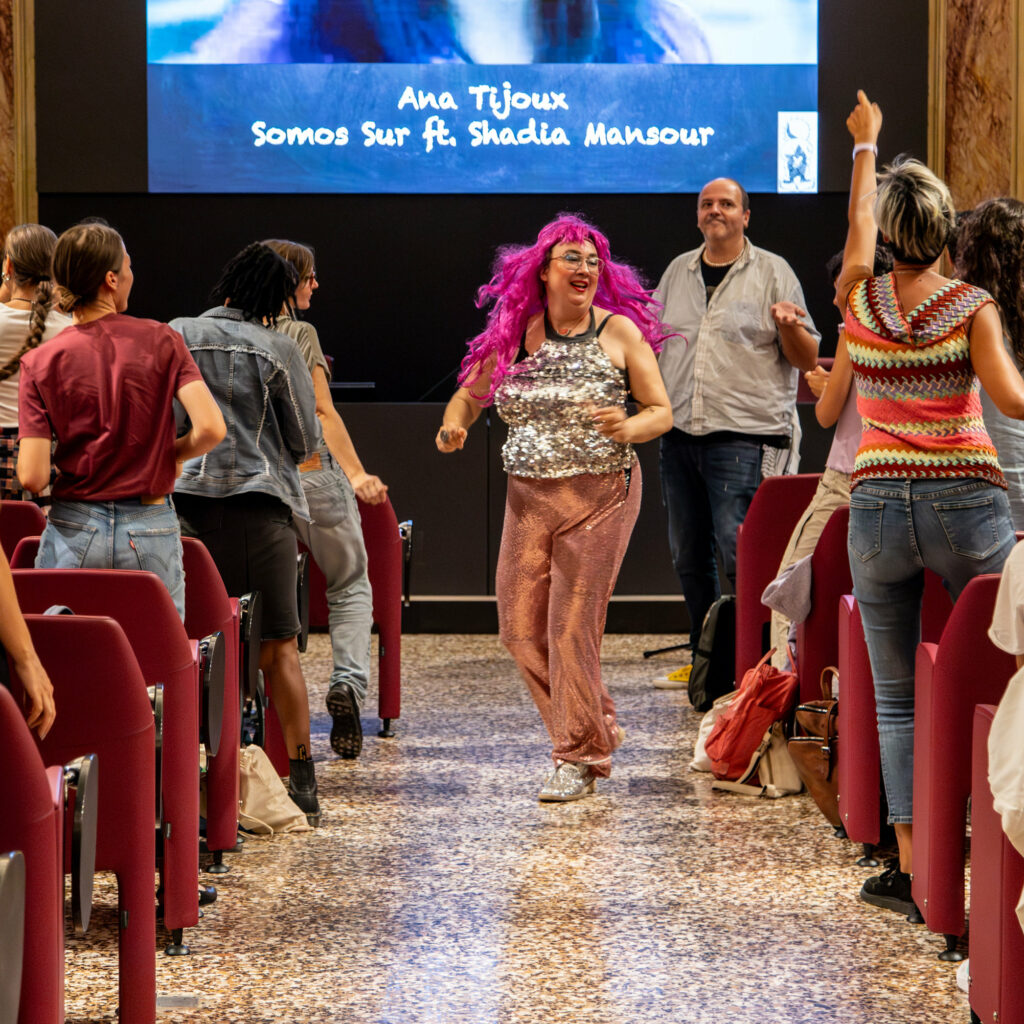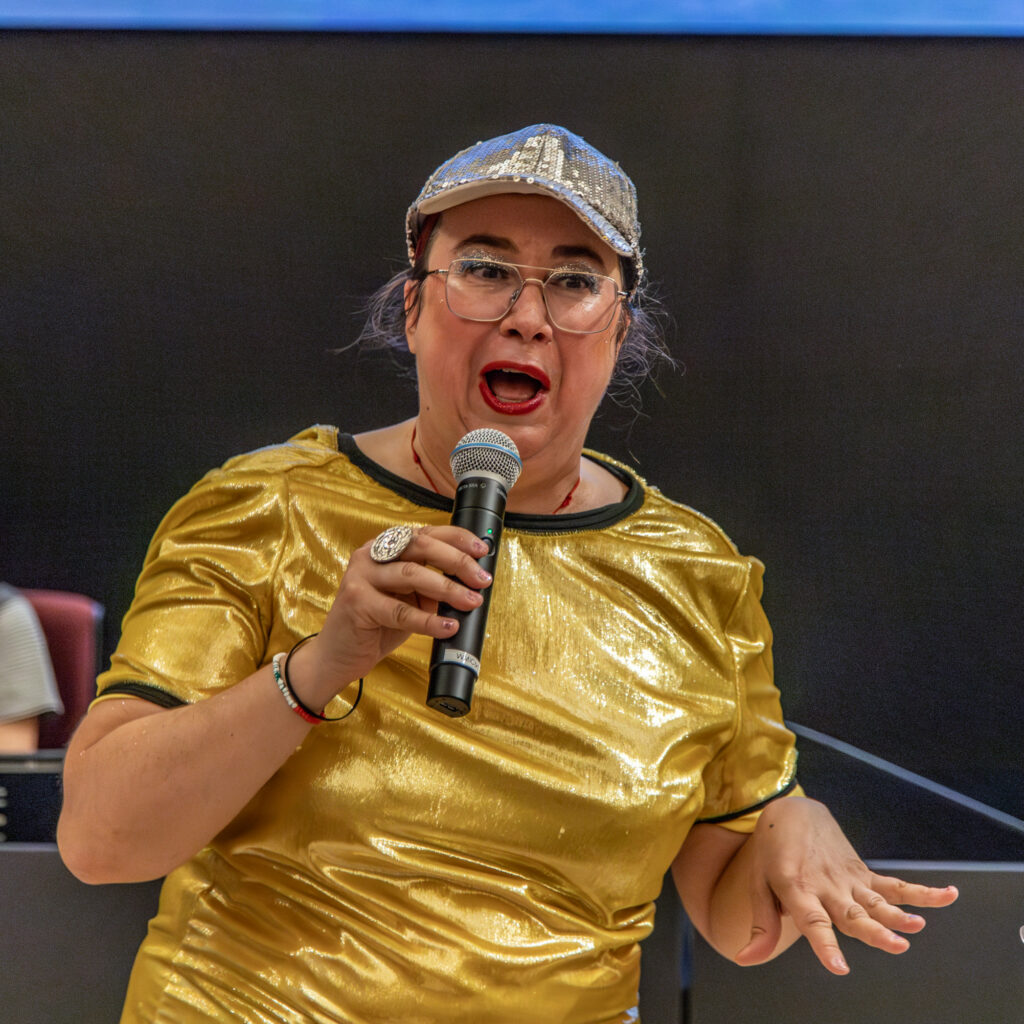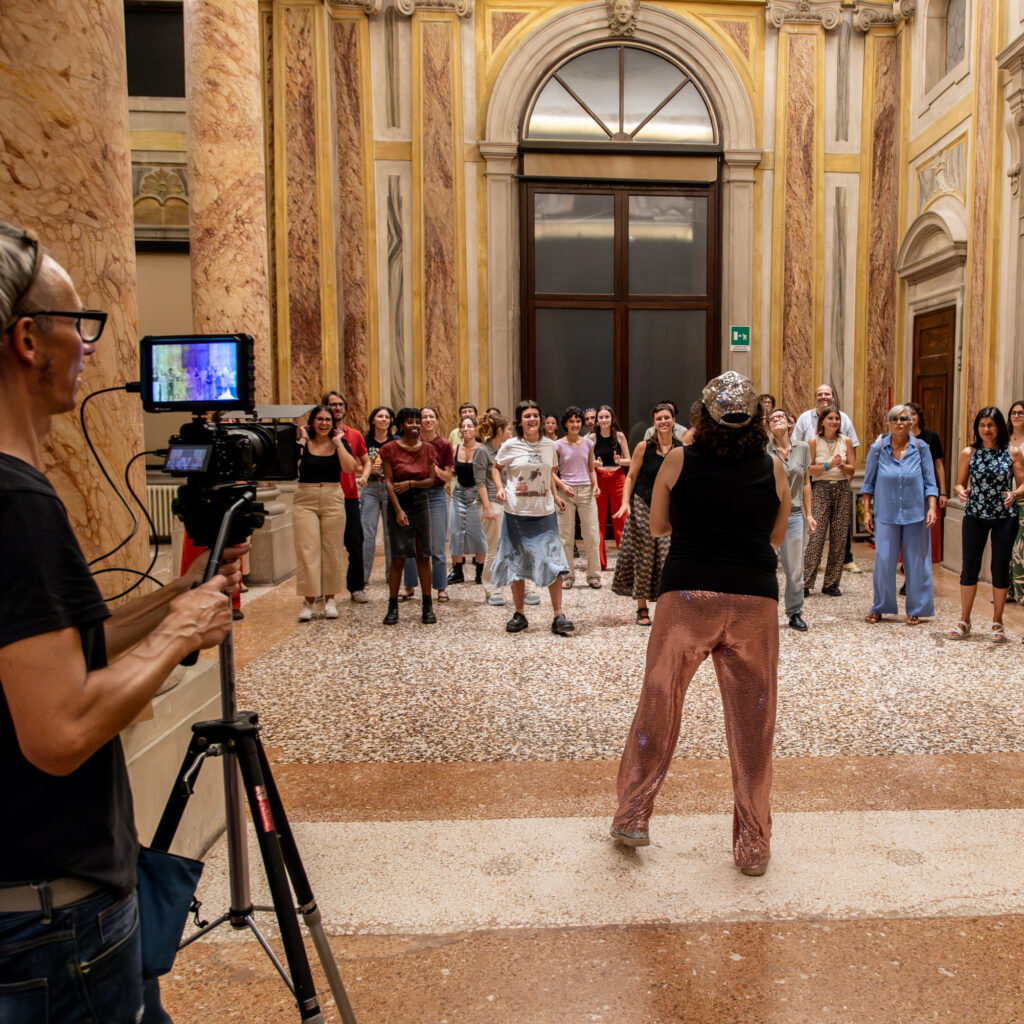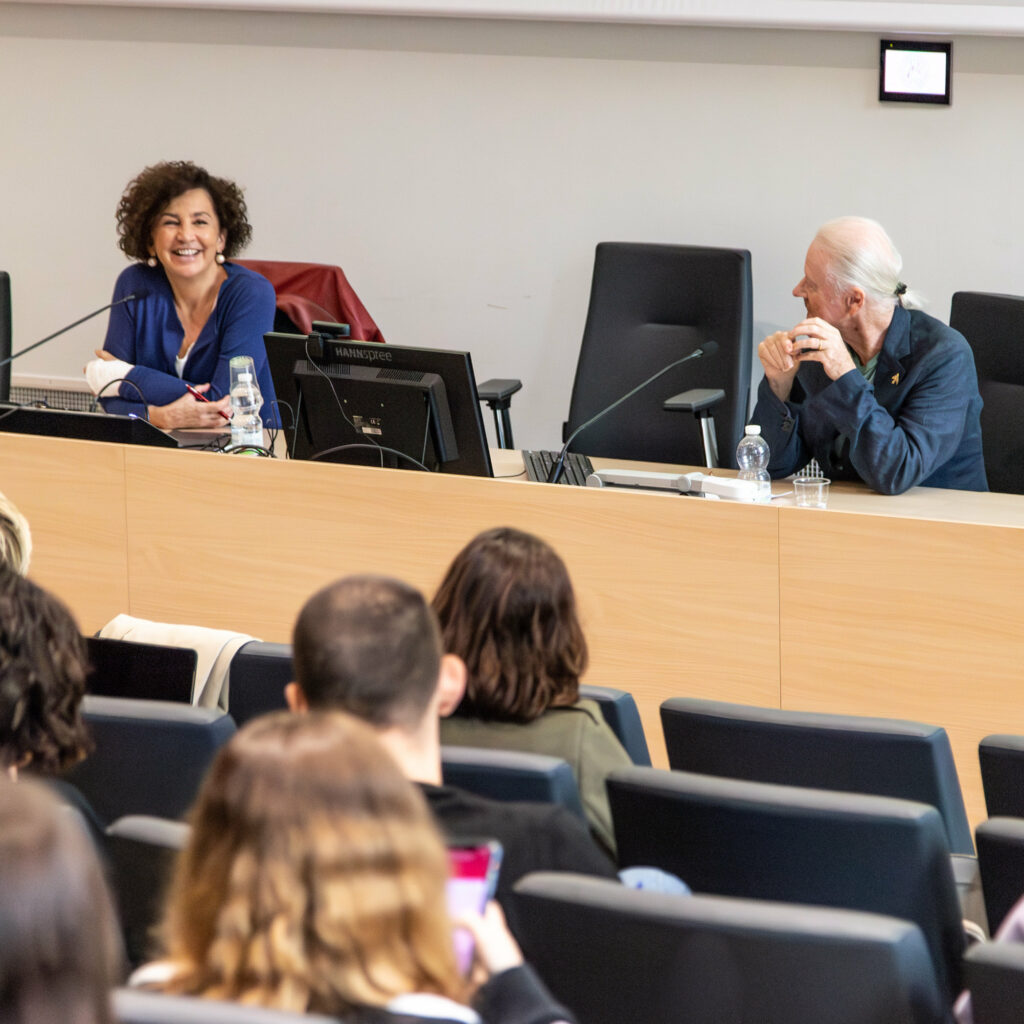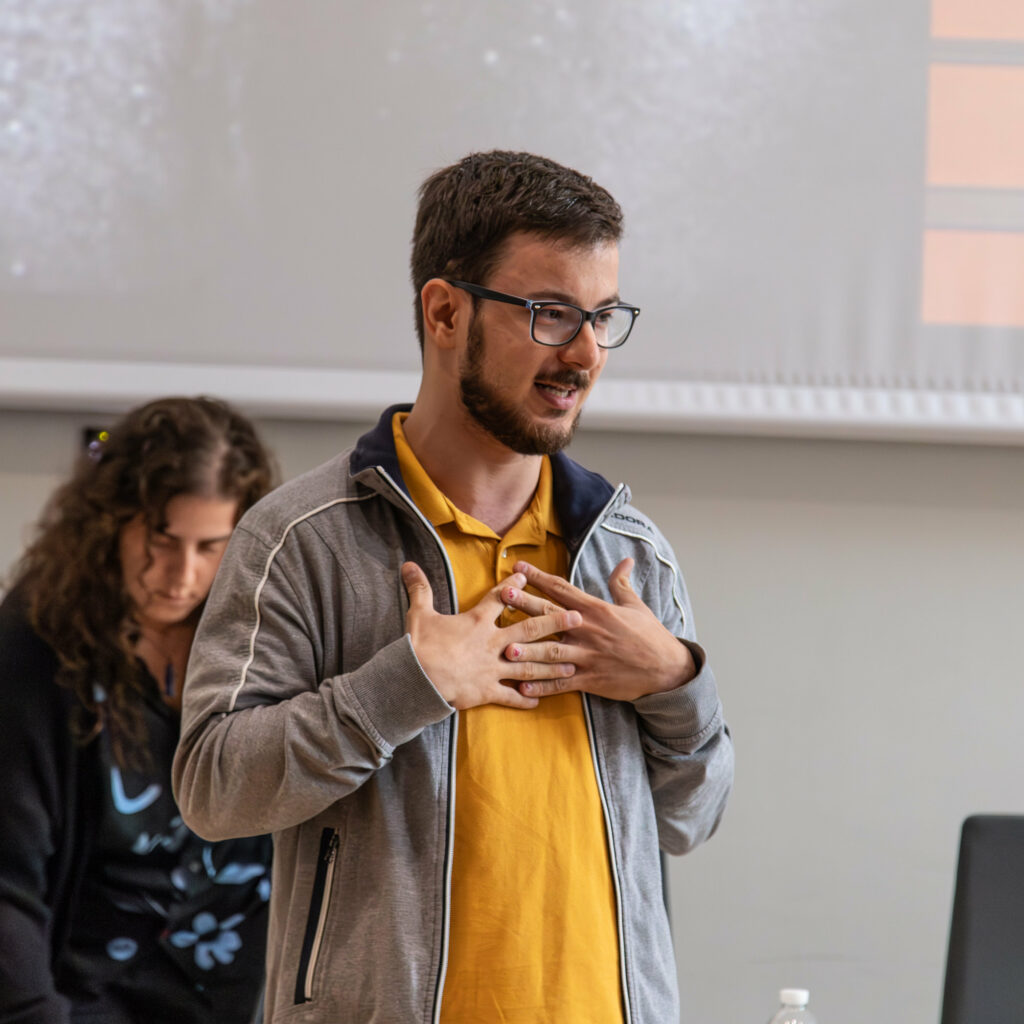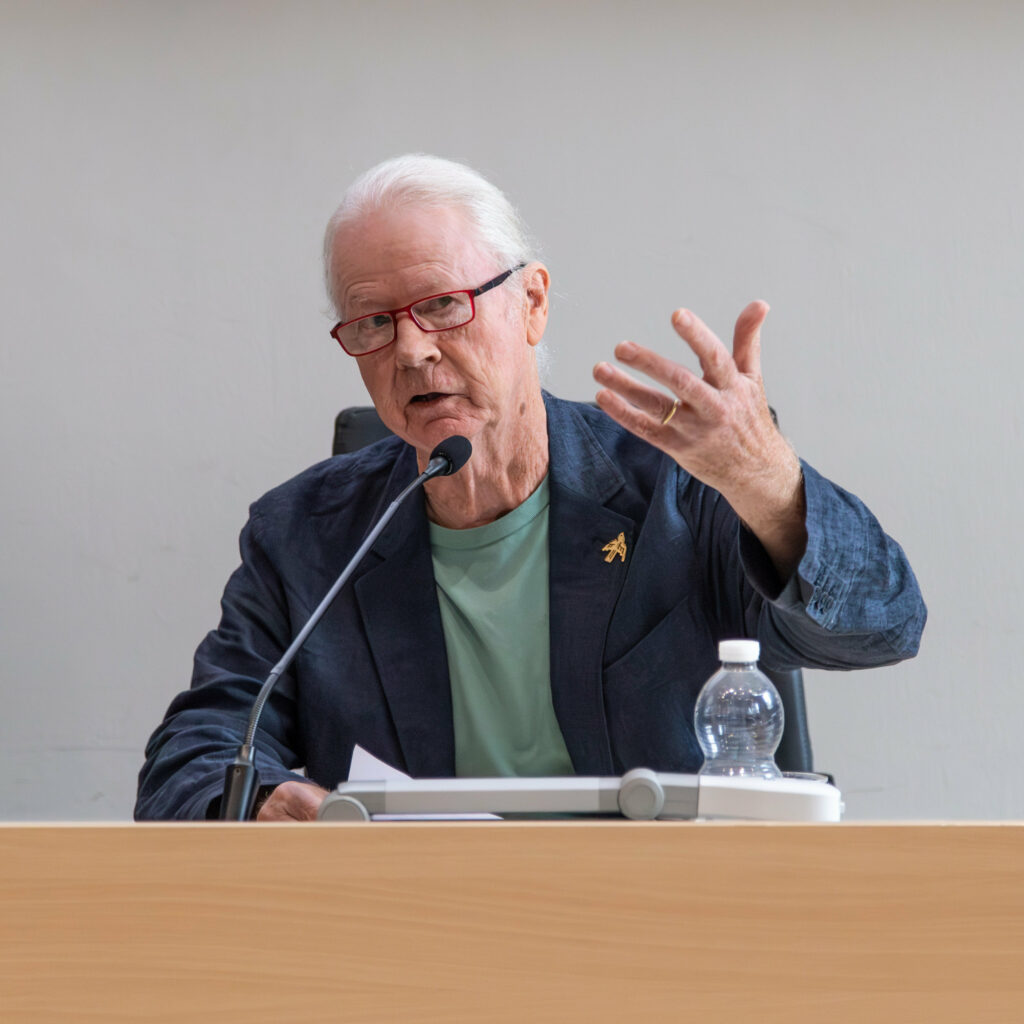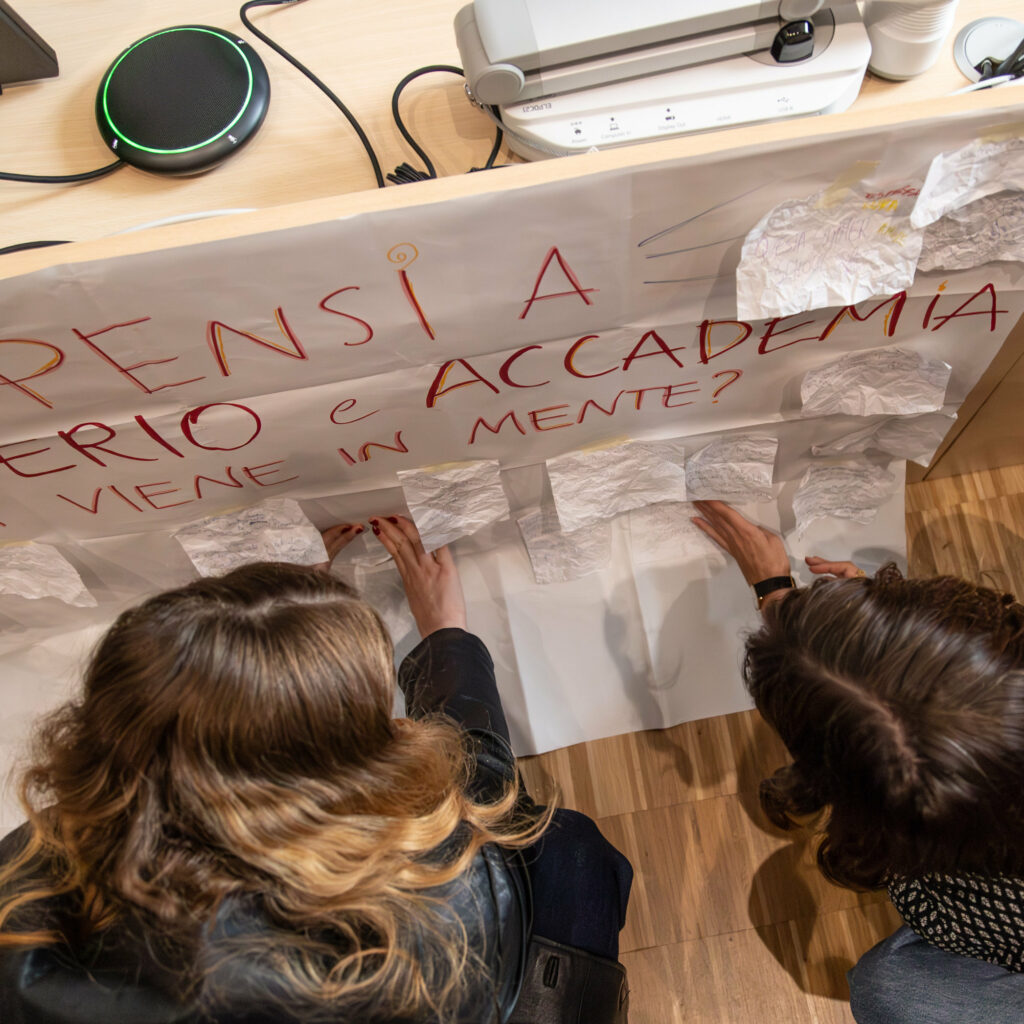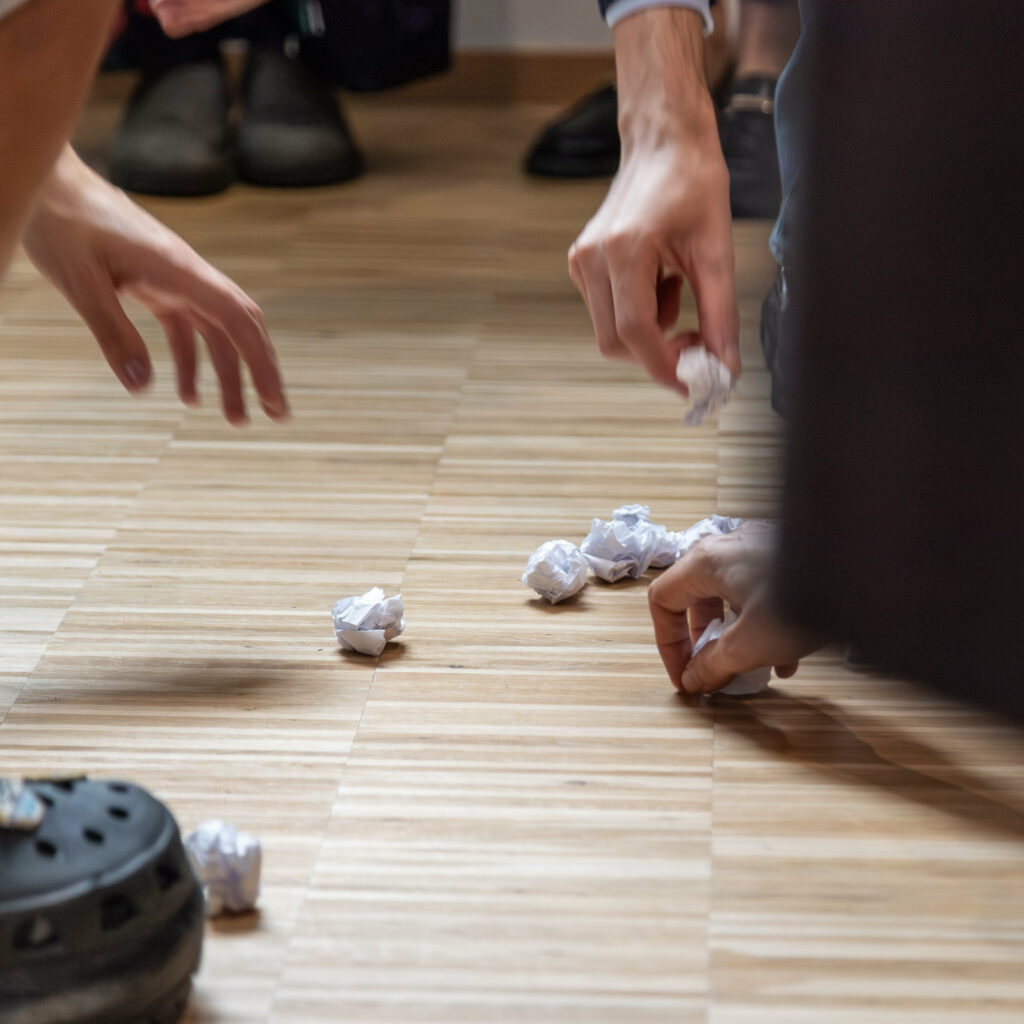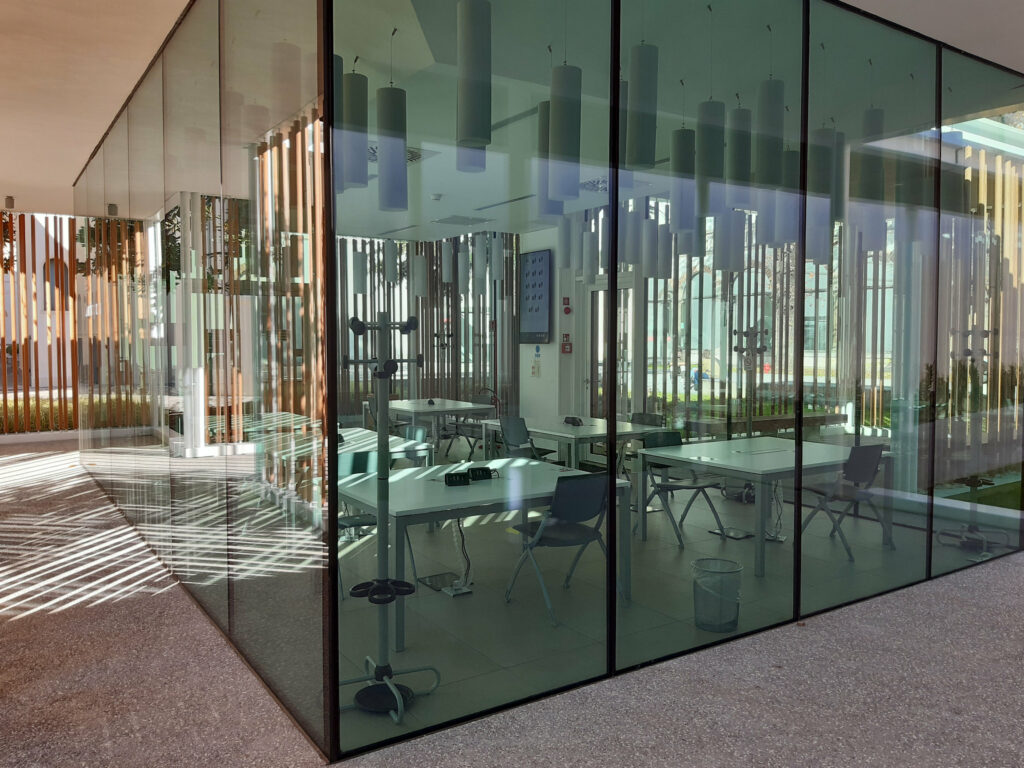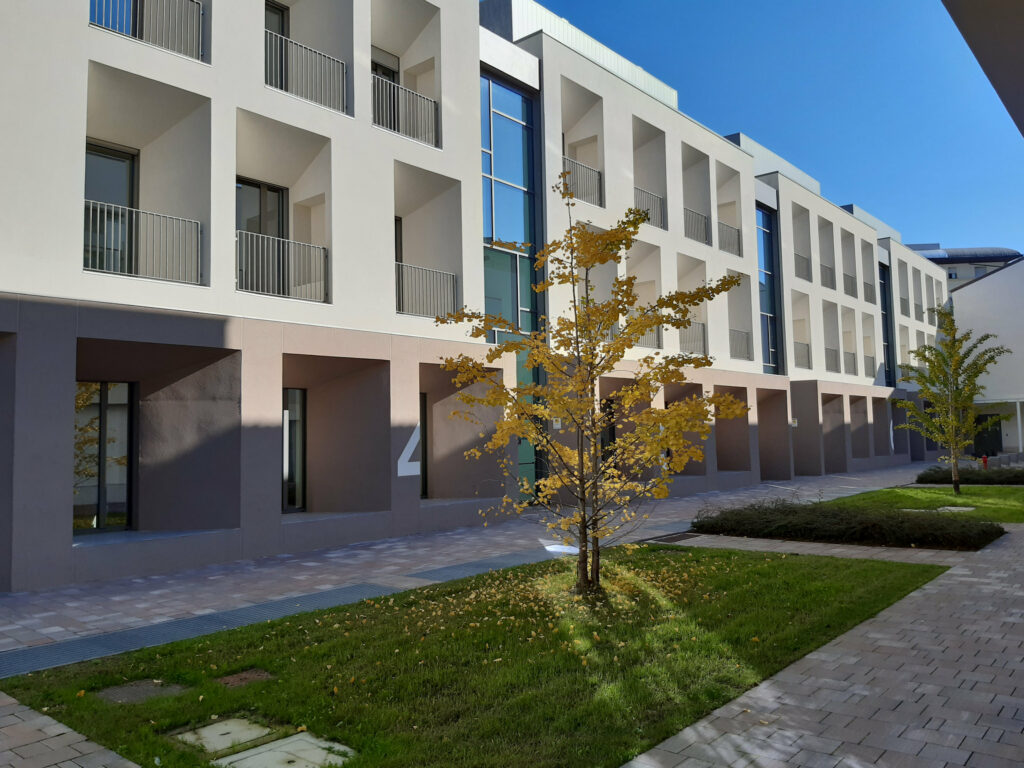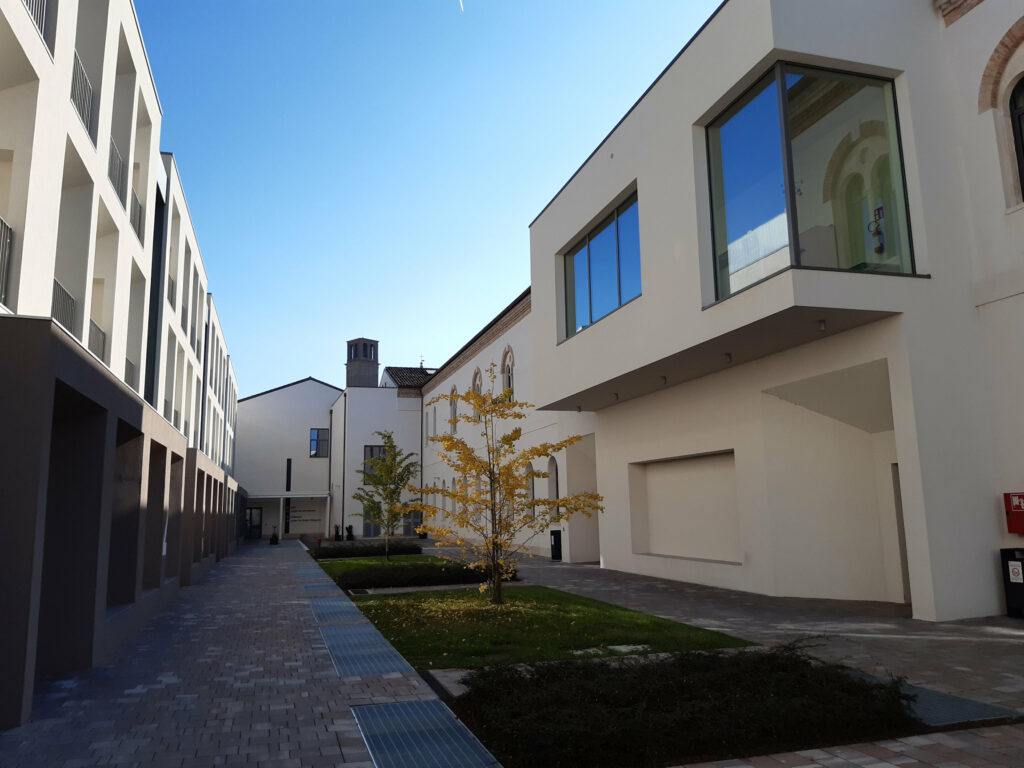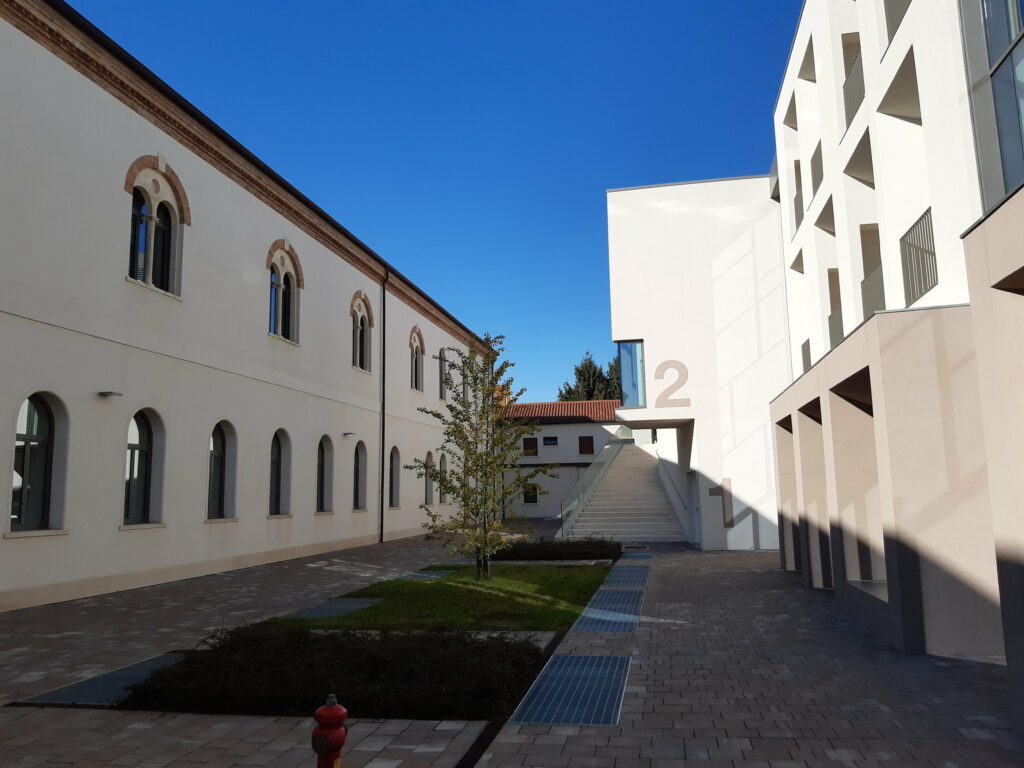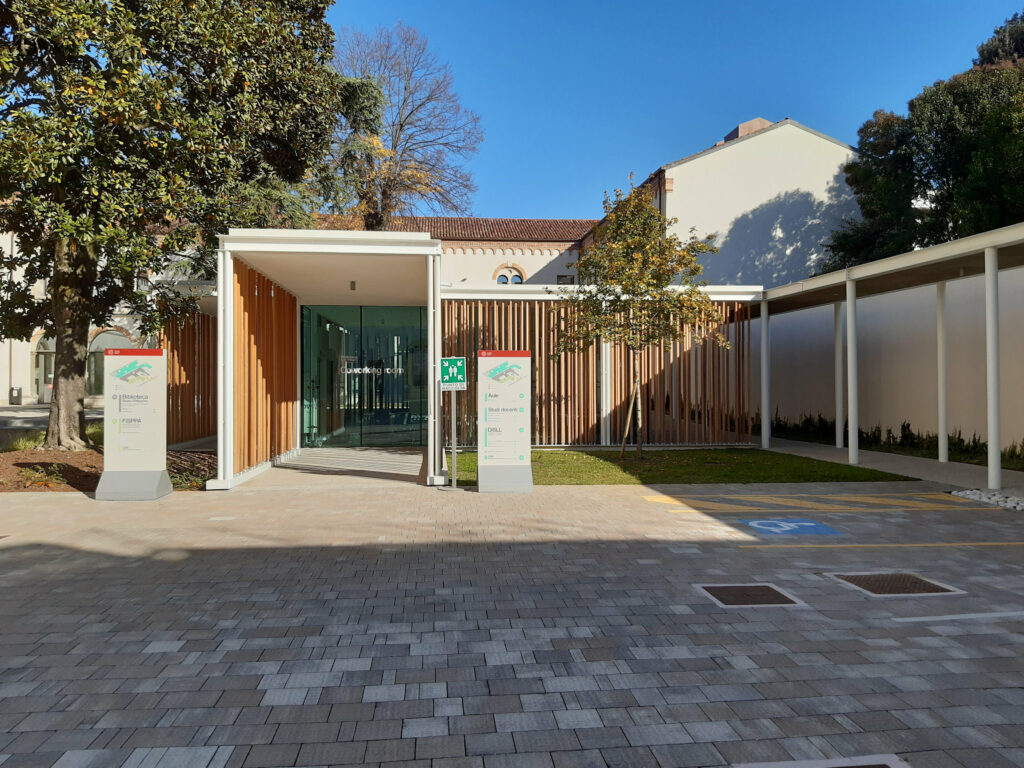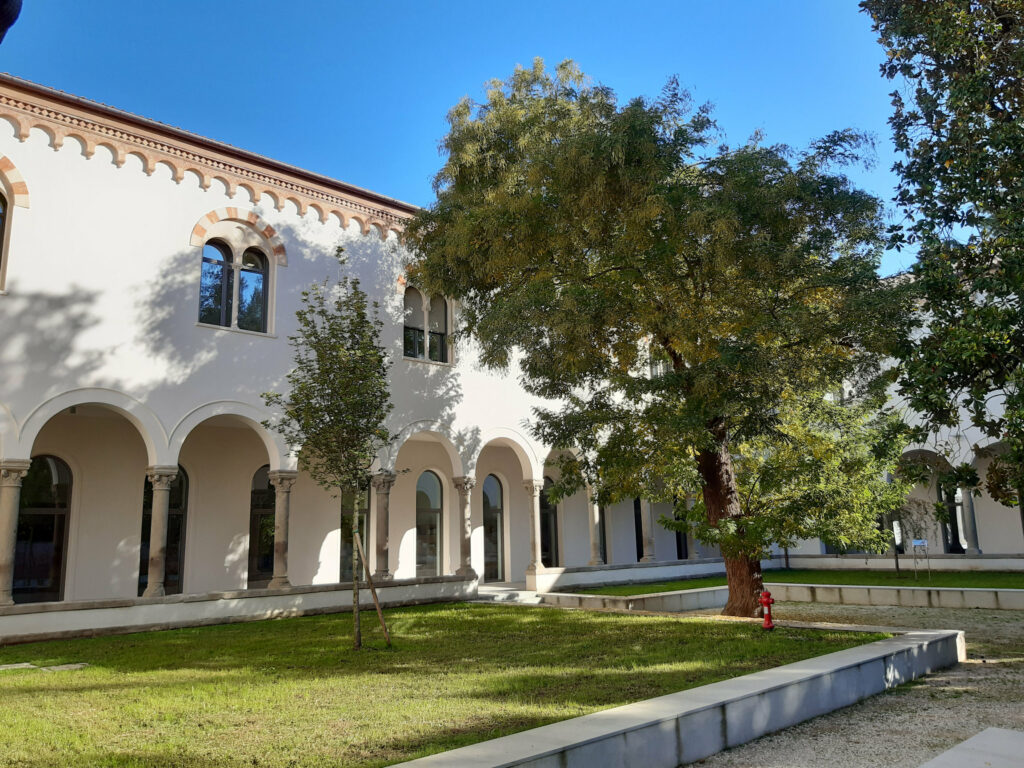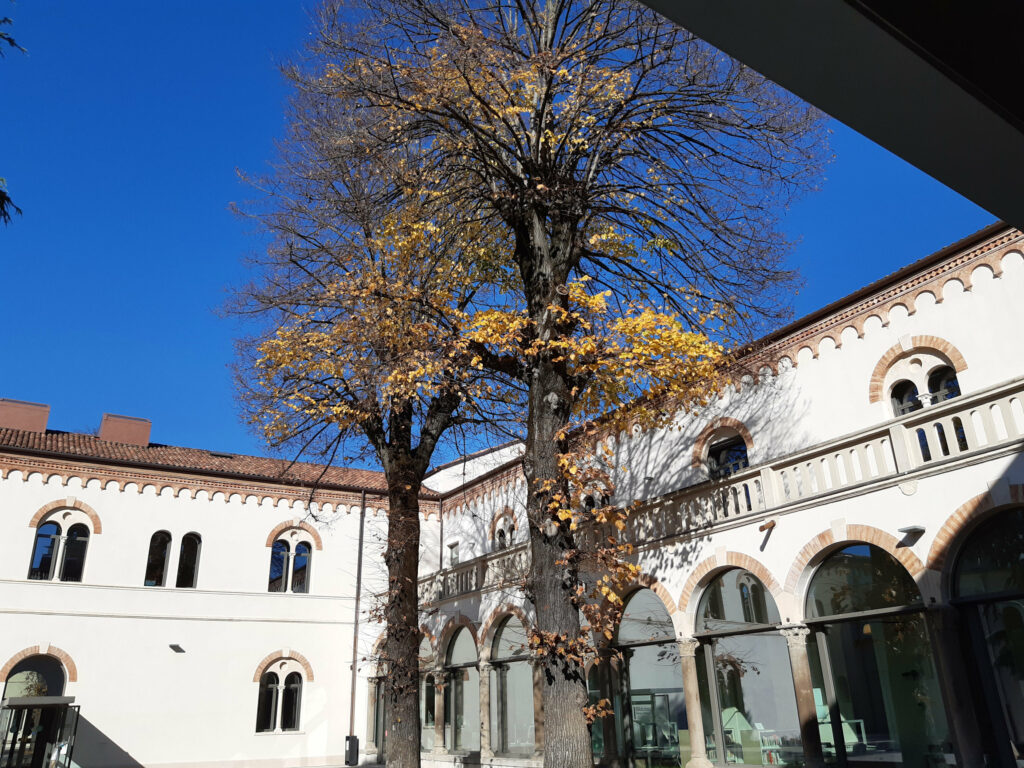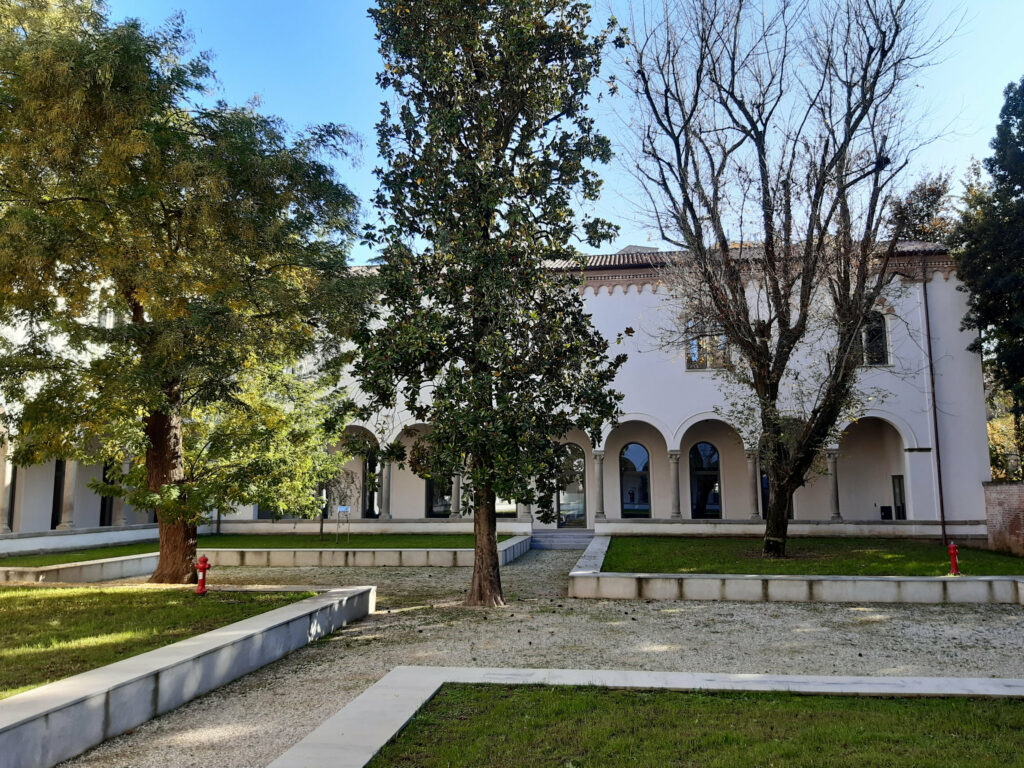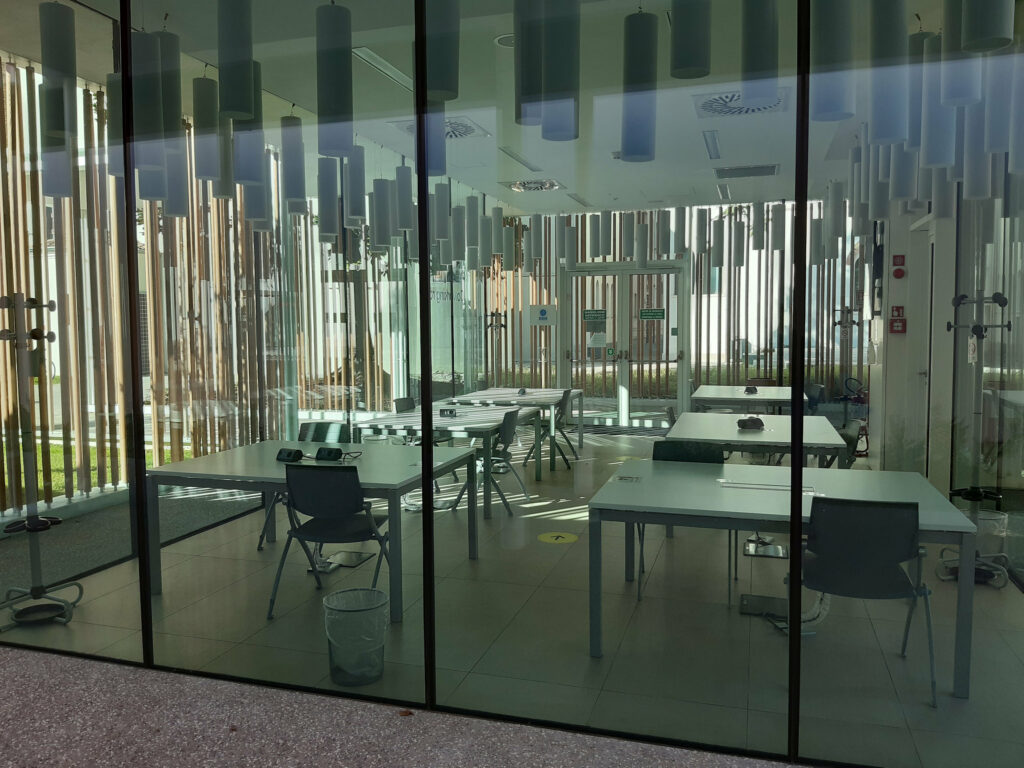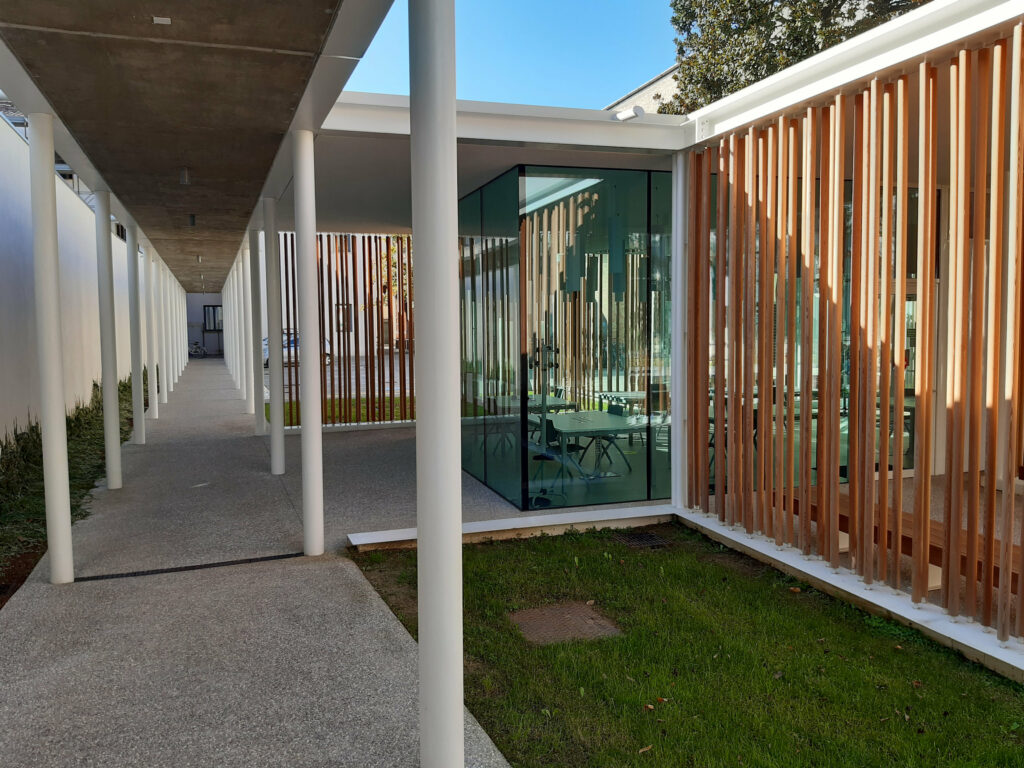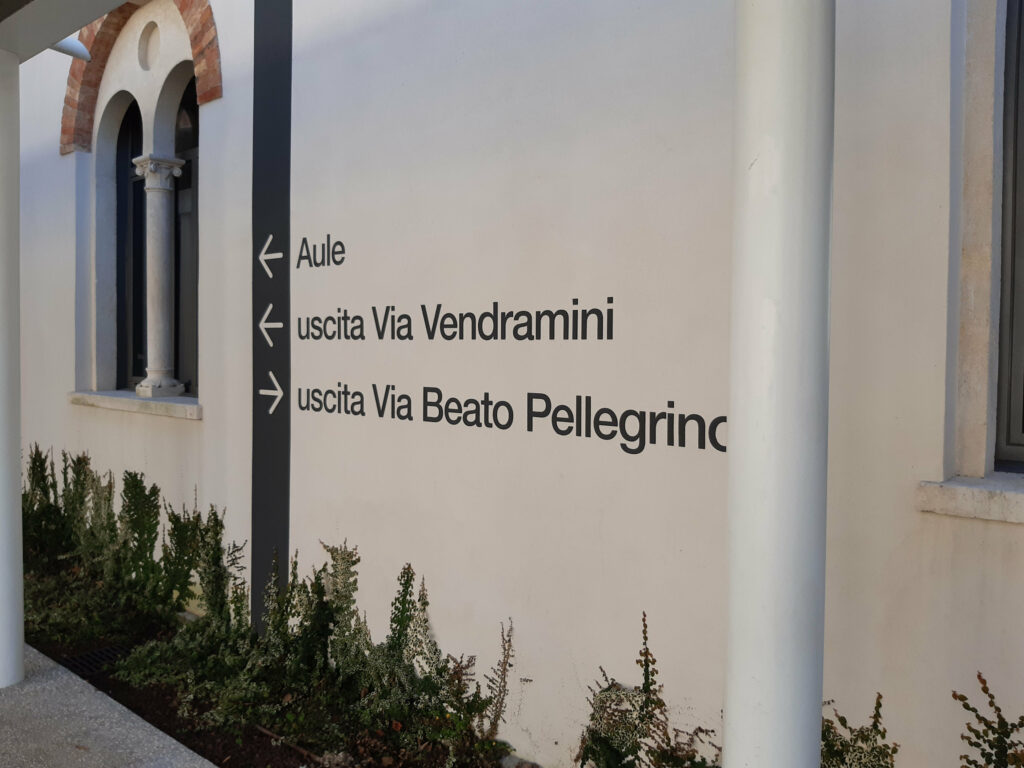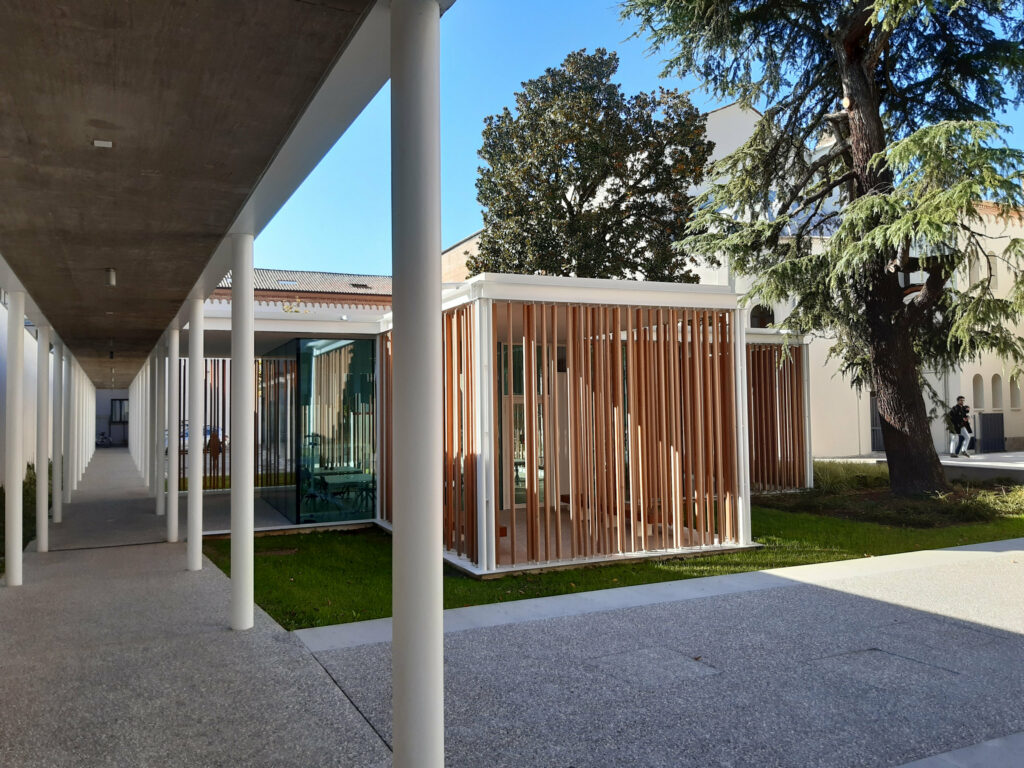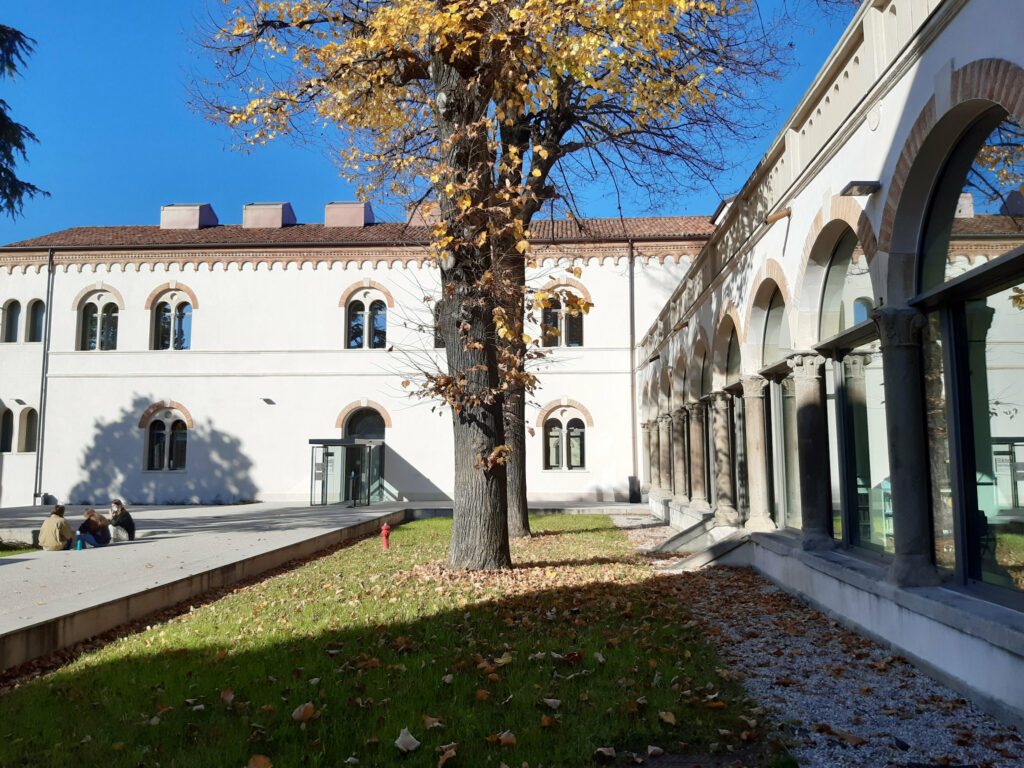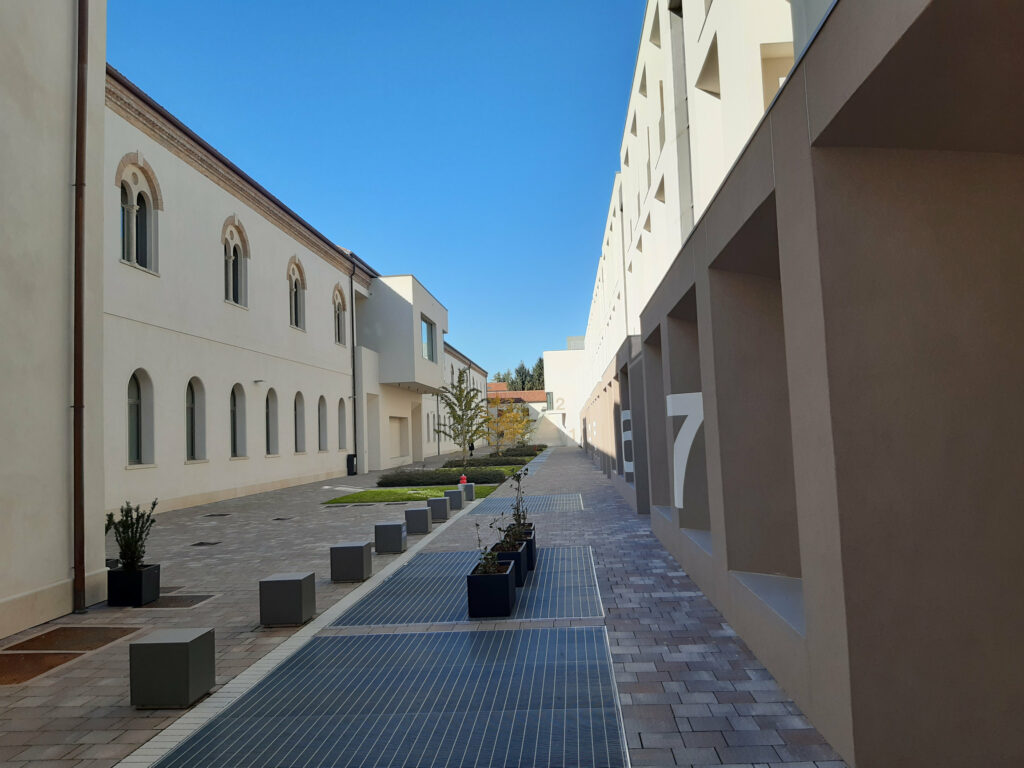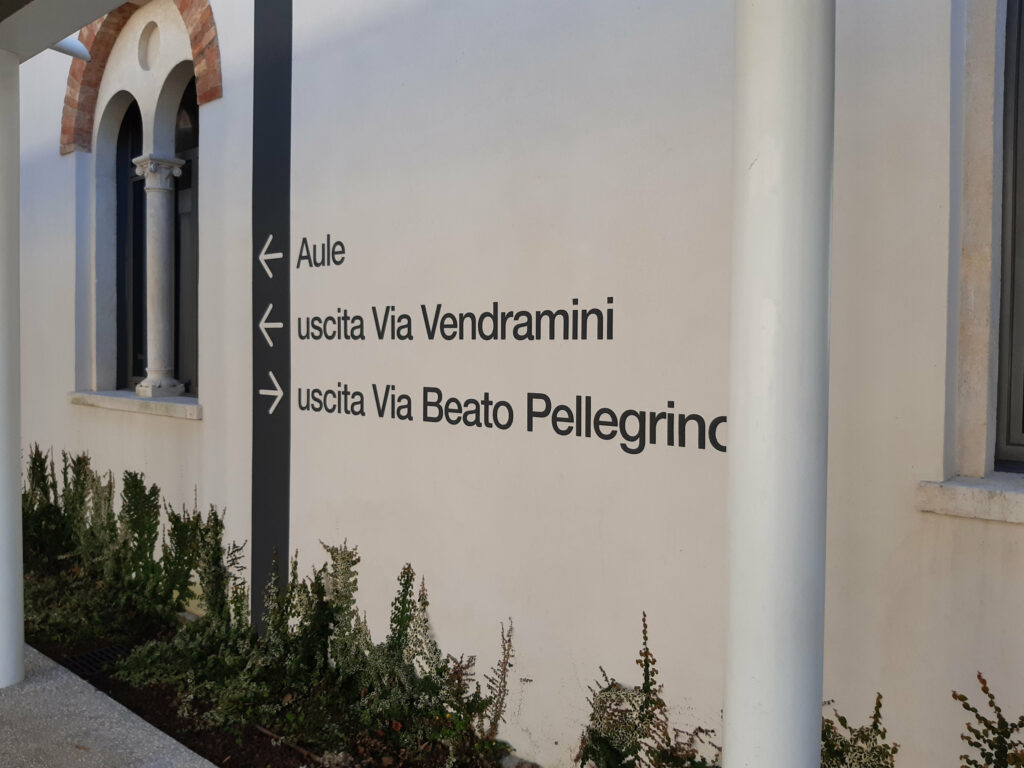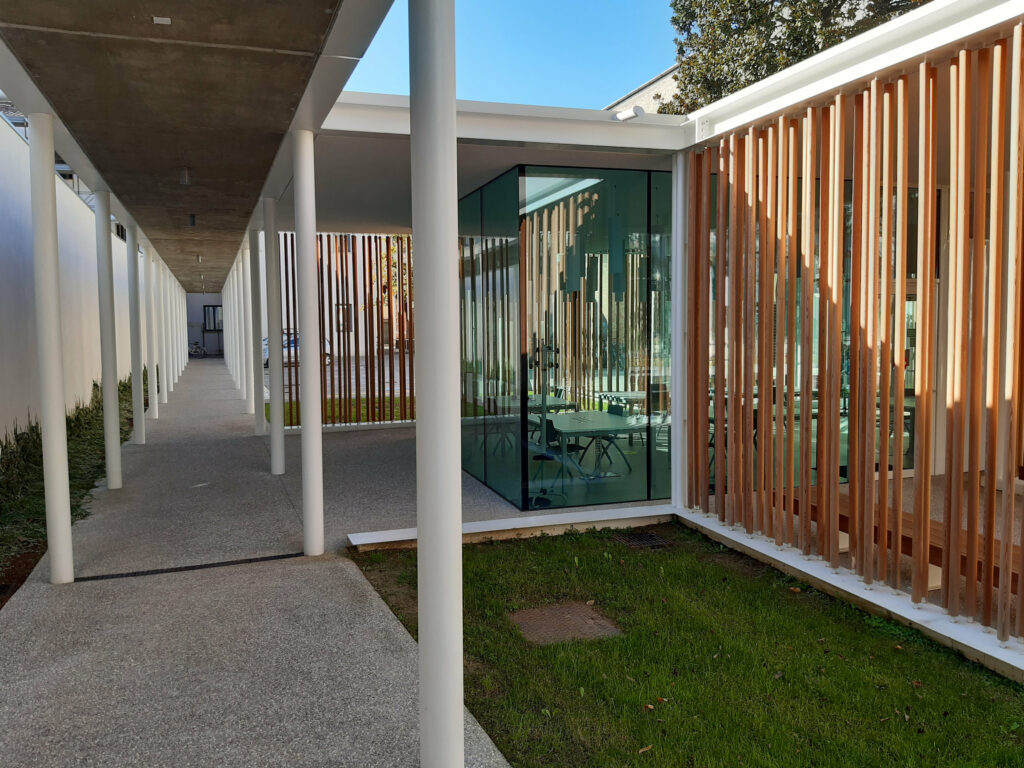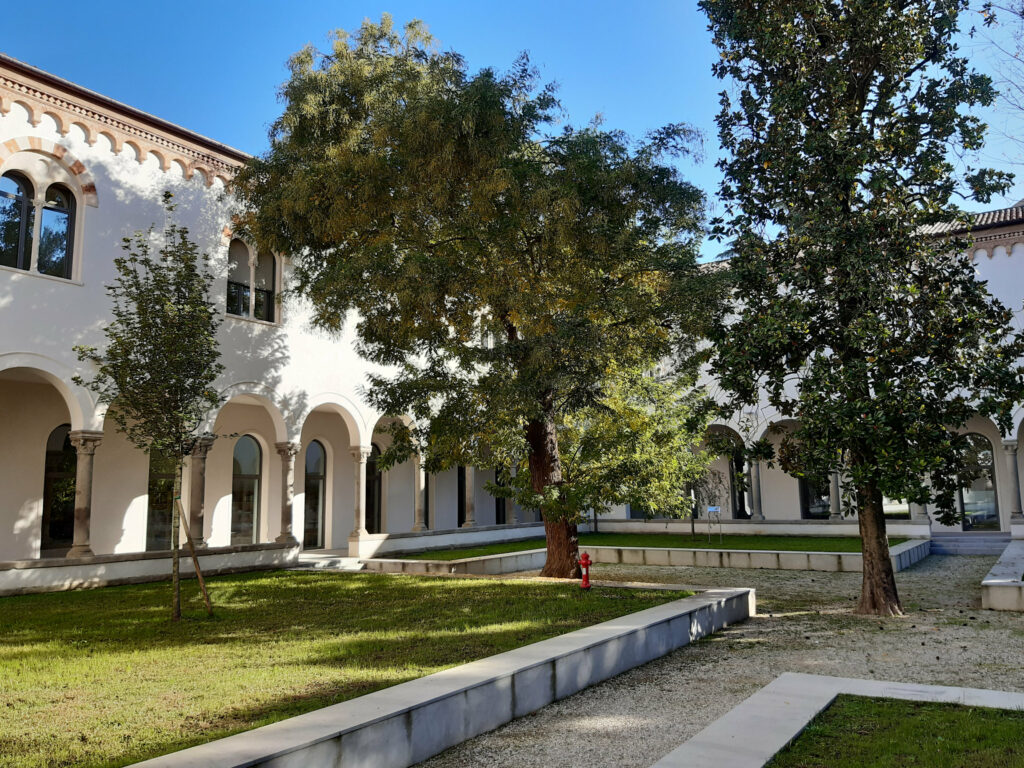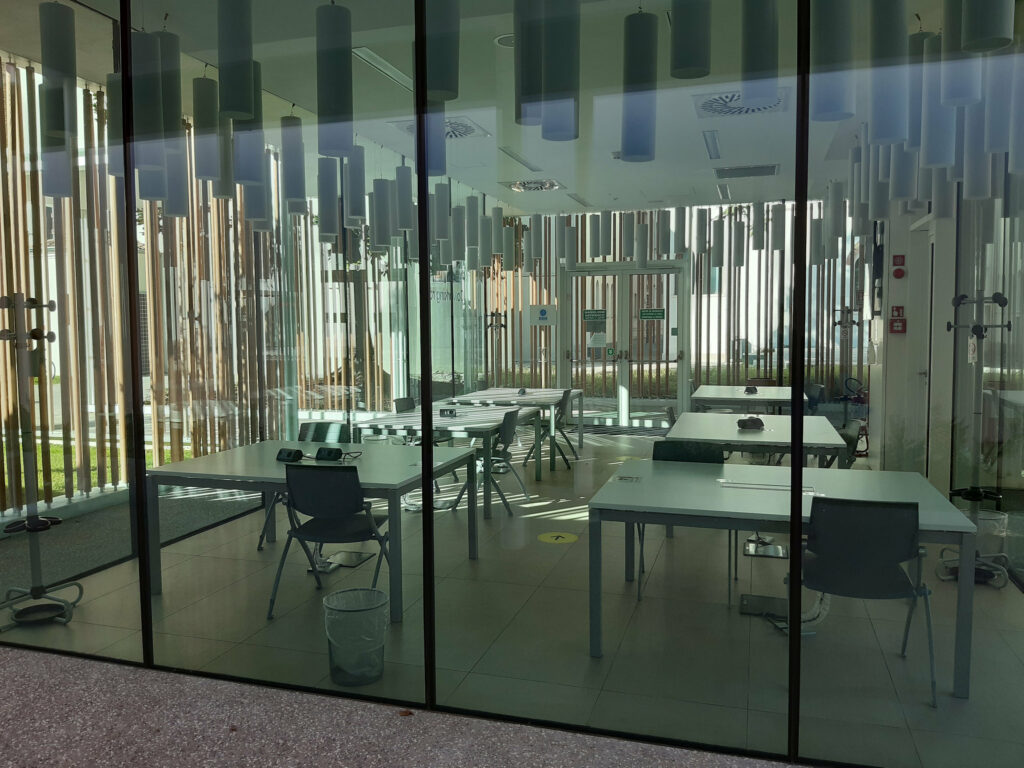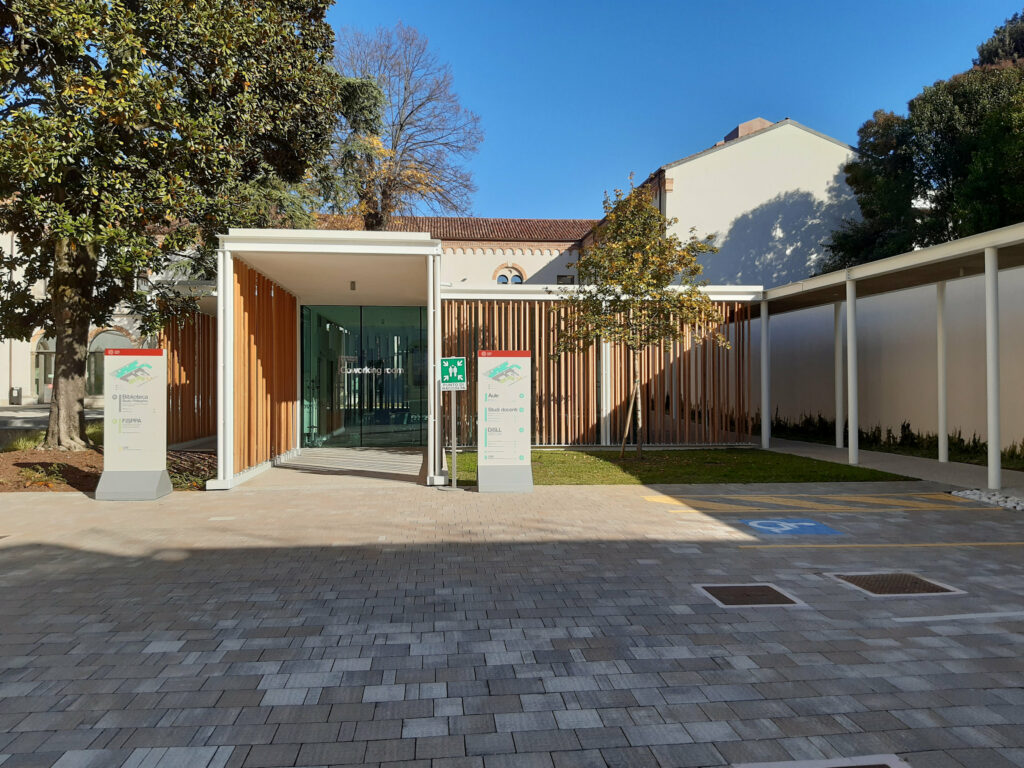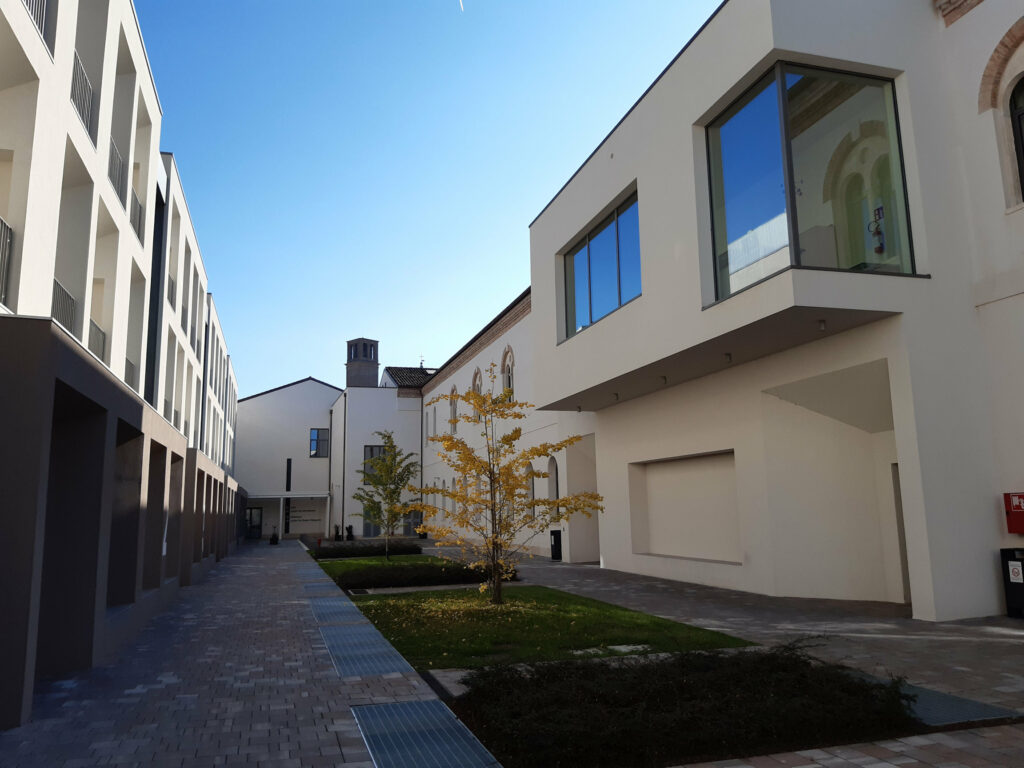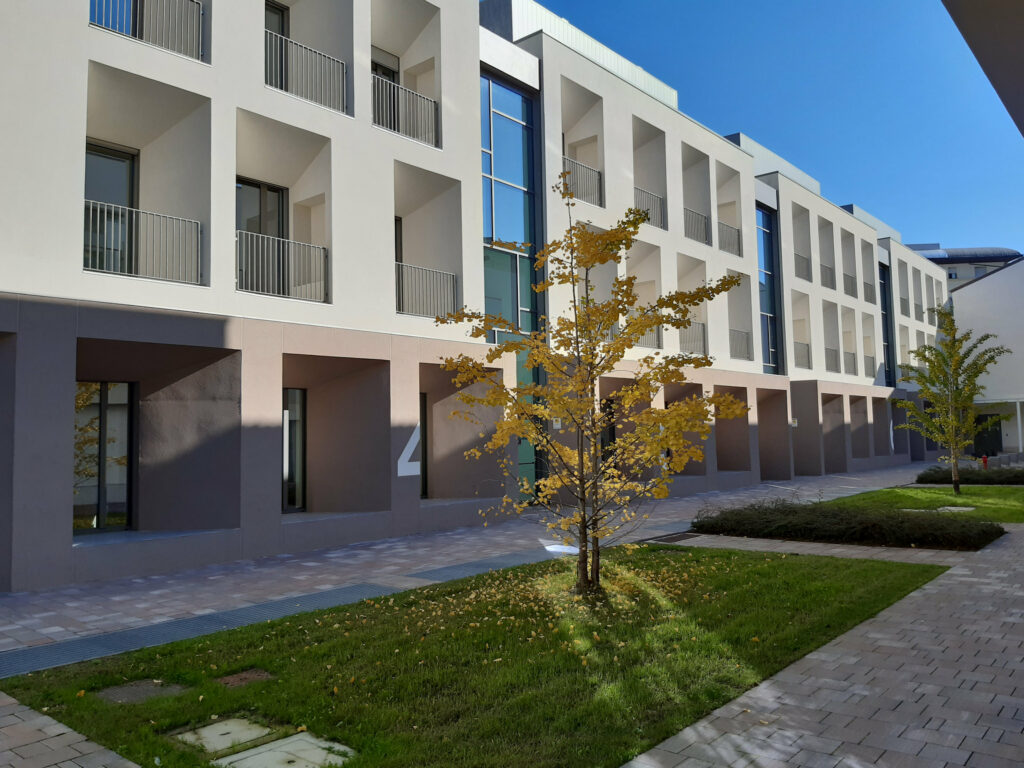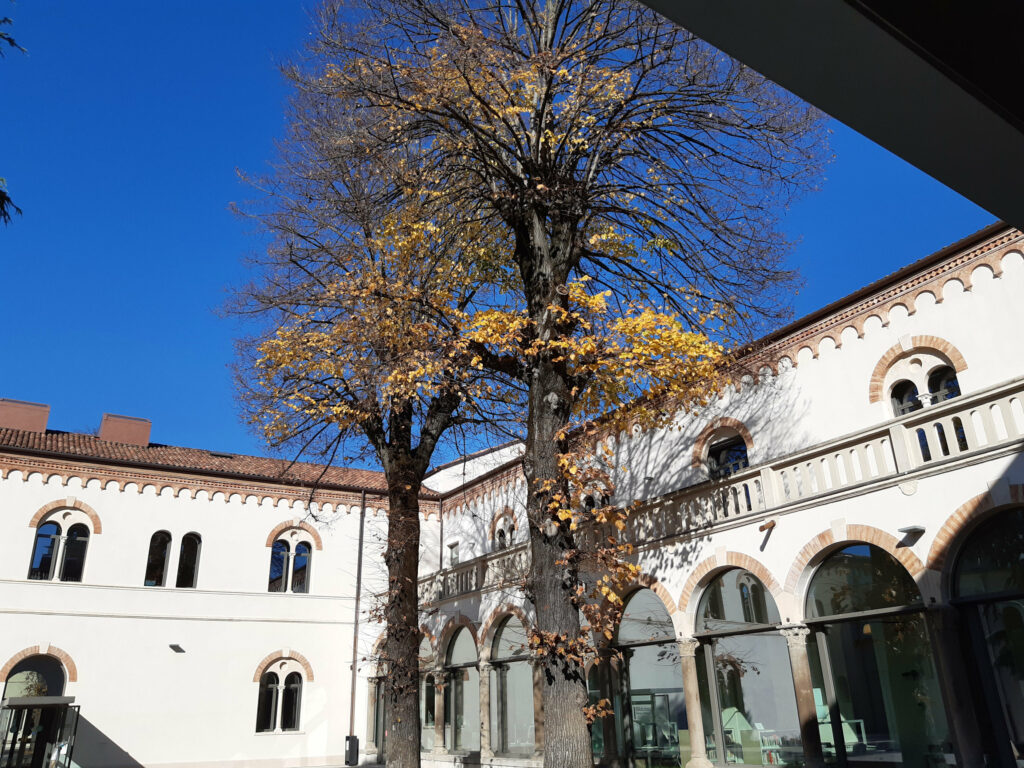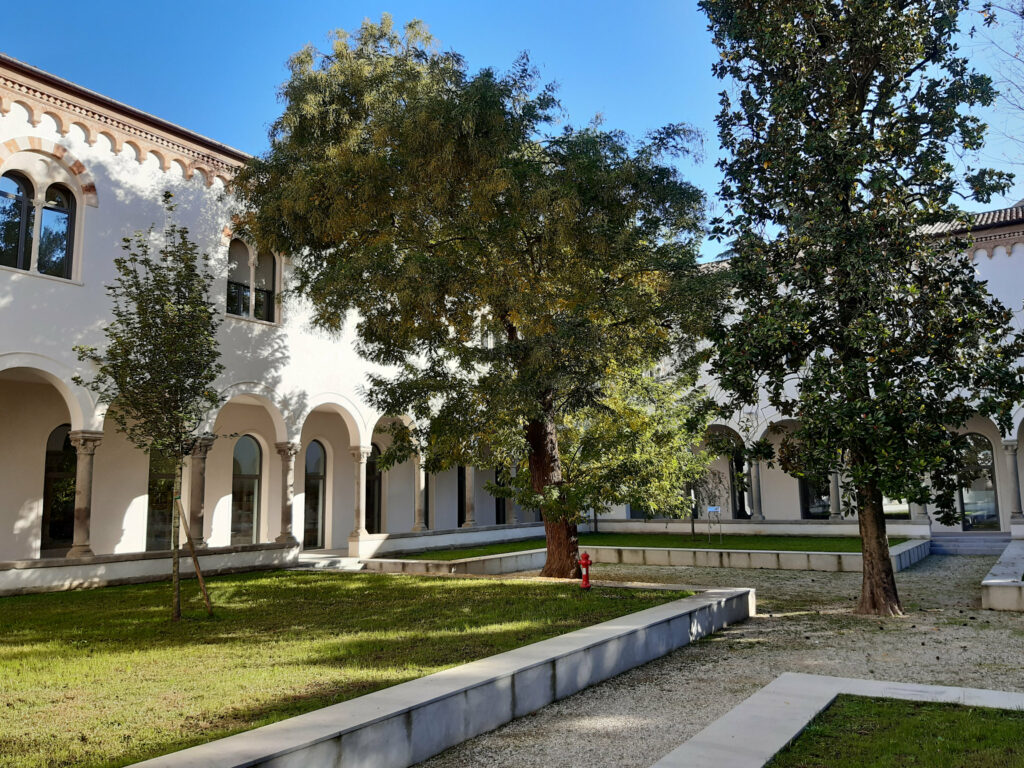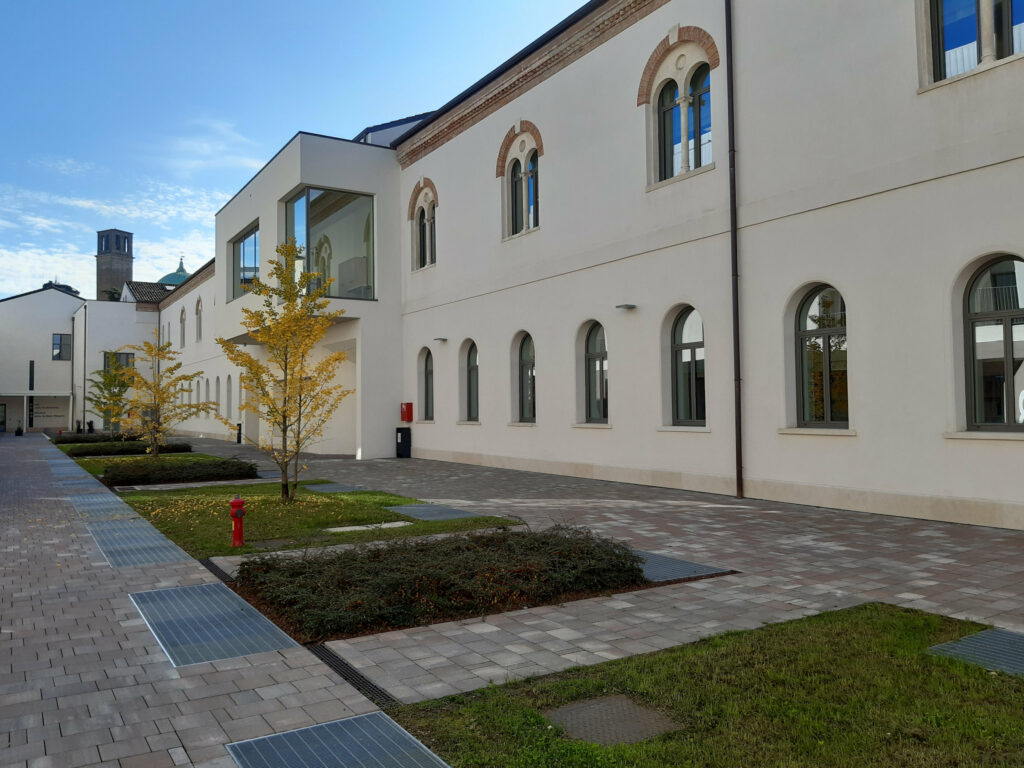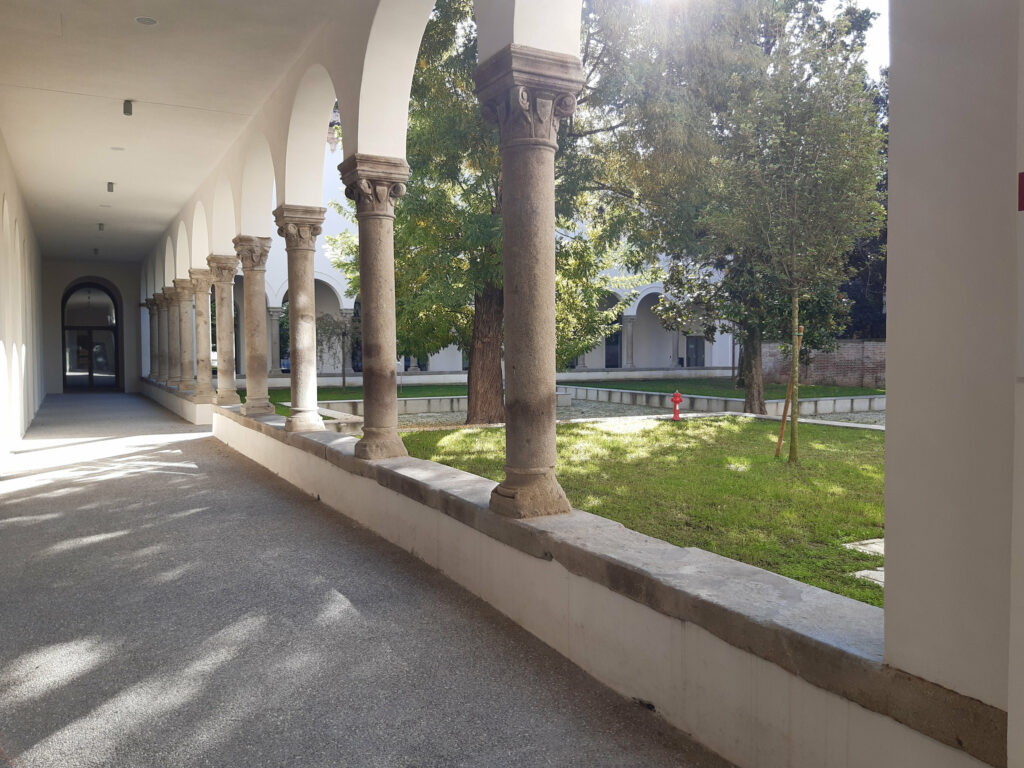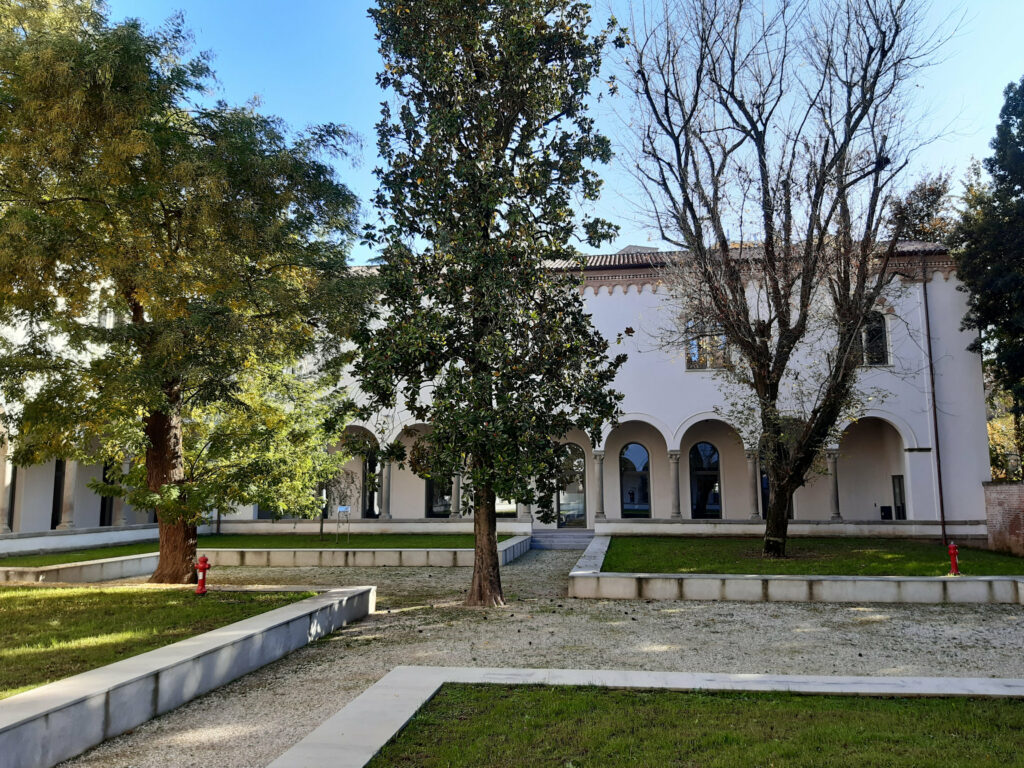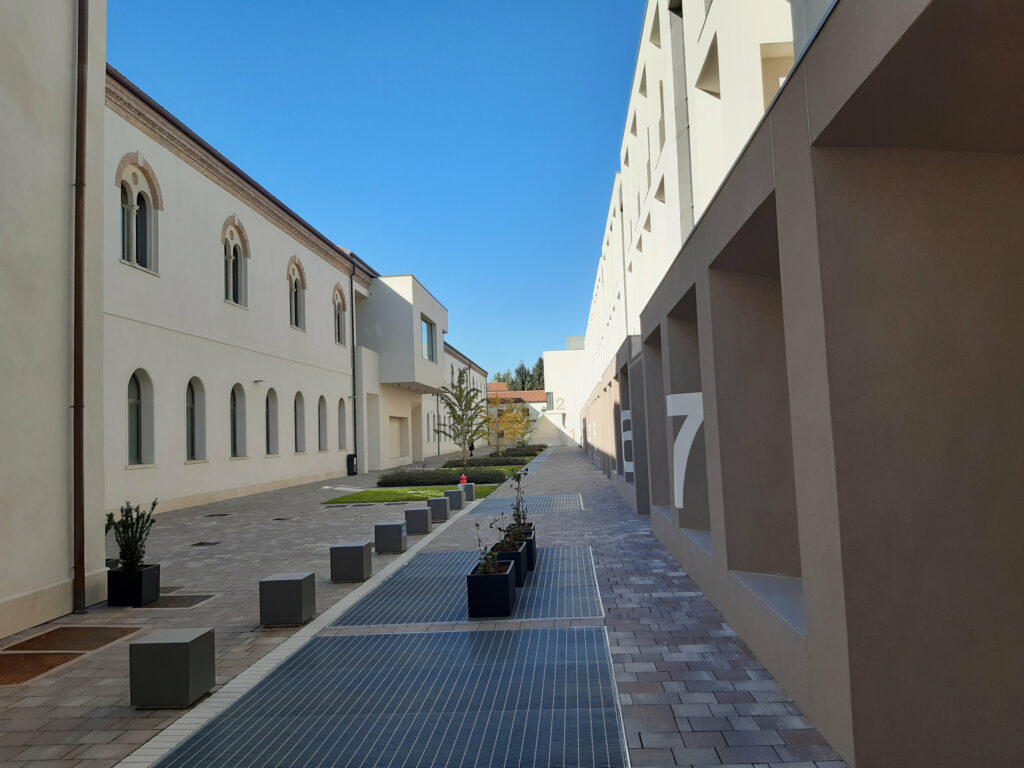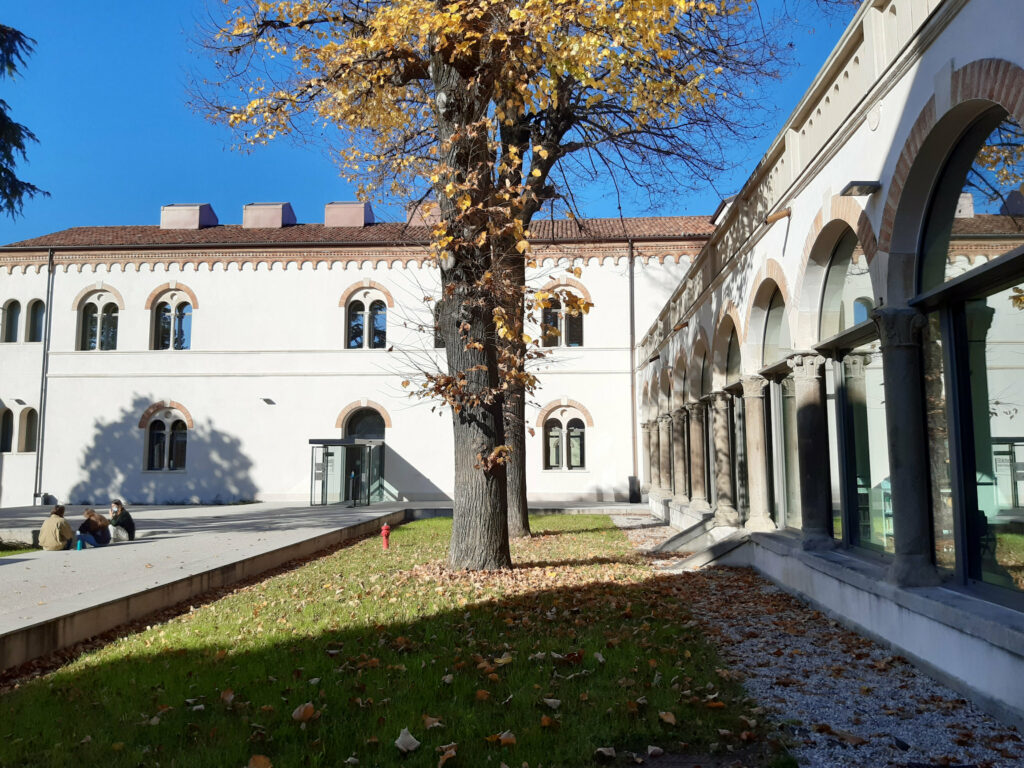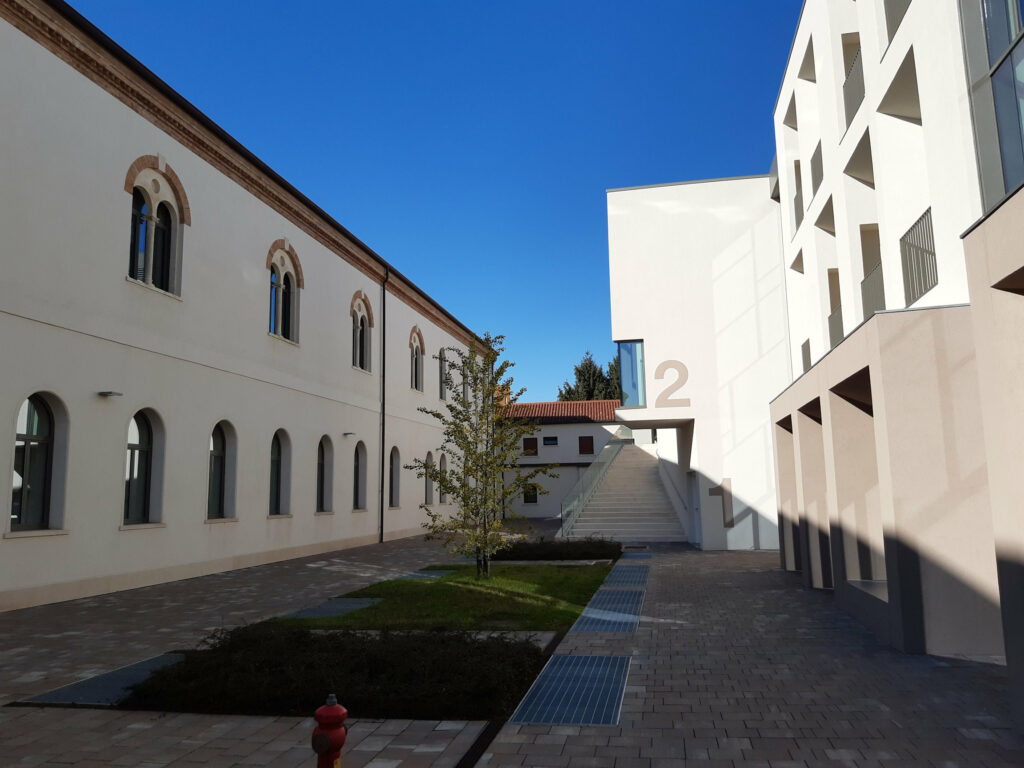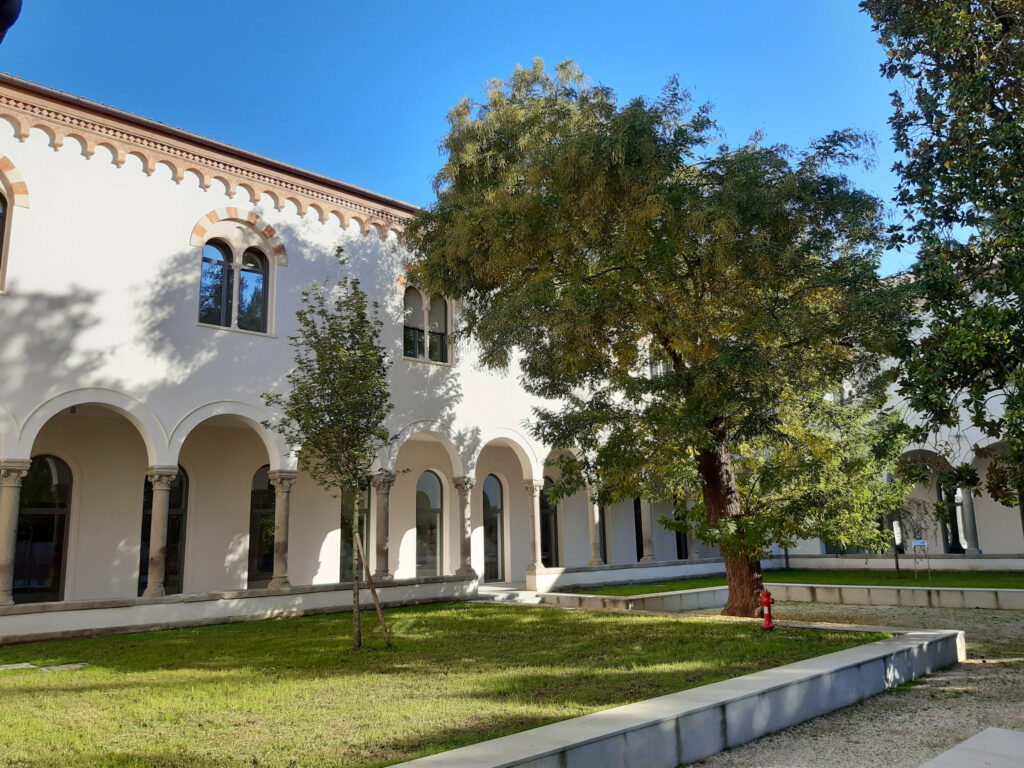International Summer School
ENTANGLEMENTS
Postcolonial Futures
and New Futurisms
University of Padua
Department of Linguistic and Literary Studies
Monday 7 - Friday 11 July, 2025
Welcome to POSTCOLONIAL FUTURES AND NEW FUTURISMS.
Registration is now open for the second edition of the International Summer School ENTANGLEMENTS, hosted by the University of Padua from July 7 to 11, 2025.
The Department of Linguistic and Literary Studies is inviting undergraduate and master’s students, PhD candidates and young researchers to take part in an immersive cultural experience focused on post- and decolonial futures and the latest literary futurisms (Afrofuturism, Africanfuturism, Indigenous futurisms, Latin American futurisms), and featuring dialogues with exceptional international guests.
The School guarantees the acquisition of 4 academic credits (ECTS).
Deadline for registration: May 31, 2025
Registration fee: € 300
Overview
The 2025 edition looks to a postcolonialism of the future, synonymous with the awareness that a fair, sustainable, liveable future will necessarily have to be a postcolonial future. A future that will have gone ‘beyond’ colonial trajectories of world organization and divisions and will be based on alternative ways of planetary living, which we cannot yet foresee, but which must be ‘created’, including through literary imagination.
The present is the battlefield of versions of possible futures, which people imagine, anticipate, fear or aspire to. In this contest, postcolonial visions of the future have an important role: not only do they fight for a deeper decolonization of the planet, but they are indispensable contributions to “the work of creating the future” (Appadurai 2013).
Postcolonial perspectives are increasingly informing the new archives of literary futurisms, which knit together the work being done by people of colour and of the Global South, such as Afrofuturism, Africanfuturism, Indigenous Futurisms and Latinx Futurisms. Each of these represents a clearly identifiable movement, mode, aesthetic, and subgenre (science fiction, fantasy, speculative fiction…). What they seem to share is a vision that bypasses the white supremacist future of the Global North, and offers the hope of surviving the dire future we face as a species and that we inflict on other species and the planet, should we not urgently institute change.
Plenary talks by leading international scholars hailing from different spheres of knowledge will be followed by workshops enabling participants to put the acquired insights into practice. The lingua franca of the School will be English, although workshops will be provided in Spanish and Italian, as well. On the last day, a feedback session will be held for participants to mingle and share their research projects with tutors.
The four-day attendance will serve as an introduction and a facilitated access (Summer Term) to the Postcolonial, Afro-descendant and Global South Cultures programs offered by the Master’s Degree Course in European and American Languages and Literature (LM-37).
The School, in its second year, falls within the third line of action addressing the phenomena of literary transculturation in the global era as envisaged by the 2023-2027 ‘Digital and cross-cultural TRANSmission of TEXTs (TRANSTEXT)’ Project of Excellence, which the Department of Linguistic and Literary Studies received funding for from the Ministry of Culture.
Guest Speakers

Igiaba Scego – writer
Keynote: July 7, 2025, 6 pm
Igiaba Scego was born in Italy to a Somali family: she is the daughter of Ali Omar Scego, the first governor of Mogadishu, ambassador and foreign minister who emigrated to Italy in the aftermath of Siad Barre’s coup in 1969. She is a writer, journalist and researcher focusing on dialogue between cultures, transculturalism and migration. She collaborates with many magazines, including Latinoamerica, Carta, El Ghibli, Migra and with a number of newspapers, including La Repubblica, il manifesto, L’Unità and Internazionale. She won the Mondello Prize with the work La mia casa è dove sono (2010); the Premio Napoli for fiction with La linea del colore (2020); she was among the twelve semifinalists for the Premio Strega with Cassandra a Mogadiscio (2023).

Luigi Marfè – Università degli Studi di Padova
In conversation with Igiaba Scego: July 7, 2025
Luigi Marfè is Associate Professor of Comparative Literature and Literary Theory at the University of Padua. His research interests include travel writing, visual culture, and translation studies. He is the author of Oltre la ‘fine dei viaggi’ (Olschki 2009), Introduzione alle teorie narrative (Archetipo 2011), ‘In English clothes’. La novella italiana in Inghilterra (Accademia 2015), and ‘Un altro modo di raccontare’. Poetiche e percorsi della fotoletteratura (Olschki 2021). He translated several volumes into Italian (W. Shakespeare’s Titus Andronicus, Bompiani 2015; R.L. Stevenson’s Songs of Travel (ETS 2019). He is on the editorial board of Cosmo: Comparative Studies in Modernism.
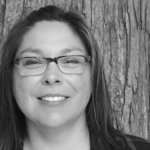
waaseya’sin Christine Sy – University of Victoria, British Columbia, Canada
Conference “Introduction to Indigenous Literatures”: July 8, 2025, 5 pm
waaseyaa’sin Christine Sy is an Associate Professor in Gender Studies at the University of Victoria (British Columbia, Canada). The university exists on the territories of the Lək̓ ʷəŋən peoples with which the WSÁNEĆ peoples also have a relationship. Specializing in Indigenous Studies, Christine researches in the areas of Anishinaabe womxn’s relationships with their territories as a source of their economic sovereignty and critical university studies; mobilizes knowledge across modalities and genres; and, teaches at the intersections of indigeneity and gender in the areas of literature, media, relationships with the settler state, feminist theory, and relationships with territory. She is co-author of Introduction to Indigenous Feminisms (Routledge, 2025) and editor of Indigenous Womxn Write and Orate More Land (Wolsak and Wynn, forthcoming).

Annalisa Oboe – Università degli Studi di Padova
Lecture and workshop: July 9, 2025
Annalisa Oboe is Professor of Anglophone literatures and postcolonial studies at DiSLL, University of Padova. She is the founder and Editor-in-Chief of the scientific journal From the European South: a transdisciplinary journal of postcolonial humanities and the founder and Director of the ‘Elena Cornaro’ Centre for gender studies and policies of the University of Padova. Her research focuses on postcolonial literatures and cultures; Black Atlantic studies; Anglophone women’s writing; South African and West African fiction; historical novels and historiographic metafiction; literature, ethics and collective futures. Latest publication: Chris Abani, Contemporary World Writers (Manchester University Press, 2022).

Chiara Xausa – Università di Bologna
Lecture and workshop: July 9, 2025
Chiara Xausa is a Marie Skłodowska-Curie Global Fellow at the University of Bologna (IT), where she leads a project exploring YA climate fiction, econarratology, and both empirical and affective approaches to ecocriticism. Previously, she has been a postdoctoral fellow in Anglophone literature at the University of Bologna (2022-2024). She completed her PhD in 2022 with a thesis on feminist environmental humanities and dystopian Anthropocene narratives. Her first monograph, titled Intersectional World Making in Climate Fiction: Undoing the Anthropocene Master Narrative, will be published by Peter Lang in 2025.

Ana Llurba – Writer
Lecture: July 10, 2025
Ana Llurba is a writer, researcher and educator. She published the novels La puerta del cielo and Hemoderivadas, a book of short stories titled Constelaciones familiares and the essays Erase otra vez. Cuentos de hadas contemporáneos, Mapas y cicatrices and Encarnar al monstruo: Hacia una nueva imaginación especulativa (2024, Spain). She is currently a doctoral student at Rutgers University (New Jersey, USA). Her academic background includes a Master’s degree in Comparative Literature from the Autonomous University of Barcelona (UAB) and a Bachelor’s degree in Modern Literature from the National University of Córdoba, Argentina (UNC). Her research interests include 20th and 21st century Latin American literature and visual arts, environmental humanities, cosmopolitics, new materialisms and feminist aesthetics.
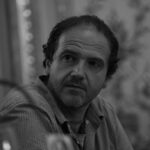
Gabriele Bizzarri – Università degli Studi di Padova
In conversation with Ana Llurba: July 10, 2025
Gabriele Bizzarri is professor of Latin American Literature at the University of Padua and editor of Orillas. Journal of Hispanistics. His research focuses on the construction of Latin American cultural identity, in a chronological perspective which sets the era of the great identity theories and narrative macro-foundations of the mid-twentieth century in dialogue with the deconstructionist drifts of the late twentieth century and with the embattled re-actualizations of the contemporary (with a series of works devoted, for example, to Bolaño’s “Latin American vision”). His interest in queer studies is also declined in this vein throughout his latest book Performar Latinoamérica. Estrategias queer de representación y agenciamiento del Nuevo Mundo en la literatura hispanoamericana contemporánea, 2020, where the performative resurrection of localist resistance in authors such as Pedro Lemebel, Diamela Eltit, and Roberto Bolaño is highlighted. He is currently working on a book on new Latin American weird fiction.

Diego Falconí Trávez – Universidad San Francisco, Quito and Universitat Autònoma de Barcelona
Lecture: July 11, 2025
Diego Falconí Trávez is a law professor at the Universidad San Francisco in Quito and an associate professor in the Department of Humanities at the Universitat Autònoma de Barcelona. He is the editorial director of Revista Iuris Dictio and co-director of the group Intertextos entre el derecho y la literatura. His research focuses on comparative studies and literary analysis, law and normativity, gay, lesbian, and queer studies, post/decolonial theories, and Andean studies, areas in which he has published numerous works both individually and as a co-author. His latest work, De las cenizas al texto. Literaturas andinas de las disidencias sexuales en el siglo XX (From Ashes to Text: Andean Literatures of Sexual Dissent in the 20th Century), winner of the 2016 Casa de las Américas Prize, is an invitation to interpret the literary works of various writers from the Andean region from an unusual perspective, that of sexual dissent.
Schedule
MONDAY 7 JULY, 2025
14:00 – 15:00
Opening session
Complesso Beato Pellegrino, Aula 1
15:00 – 17:30 – Workshop
“Postcolonial Dictionary”
Complesso Beato Pellegrino, Aula 1
18:00 – 19:45 – Keynote speech
Scrivere la storia, scrivere le storie. Una riflessione sulla letteratura decoloniale
IGIABA SCEGO
Complesso Beato Pellegrino, Aula 1
20:00 – Optional social activity
Welcome aperitivo
(Included in the registration fee)
TUESDAY 8 JULY, 2025
09:00 – 10:45 – Conference
Igiaba Scego’s Narrative
LUIGI MARFÈ
Complesso Beato Pellegrino
11:15 – 13:00 – Workshop
Selected readings of Igiaba Scego
LUIGI MARFÈ
Complesso Beato Pellegrino
13:00-14:30
Packed lunch
(Included in the registration fee)
14:30-16:30
Free time
16:30-18:30 – Conference
Indigenous Literatures Across a Temporal Arc: A Brief Introduction
WAASEYAA’SIN CHRISTINE SY in dialogue with Alice Salion
(Professor Sy will be joining us from Canada)
Complesso Beato Pellegrino
Language: English
This forty-five minute lecture will introduce learners to the subject of Indigenous literatures arising from those Indigenous lands that are also recognized globally as Canada and the United States. Starting with a definition of “Indigenous literatures” and identifying why Indigenous literatures are important, the topic will be elucidated through a temporal arc. Specifically, Indigenous literary foundations including land-based, material, and oral—and which are pre-colonial—will be identified. This will be followed by an overview of general and specific impacts of colonialism. Examples of Indigenous literary endurance (e.g. autobiography, storytelling), resistance (i.e. erotica), and regeneration (i.e. literary nationalism, Indigiqueer writing) will be highlighted. The presentation will close with an introduction to one theory about Indigenous futurism in literature and directions for Indigenous literary futures.
20:00 – Film
Black Panther
Ryan Coogler, 2018
Complesso Beato Pellegrino, Aula 1
Language: English
WEDNESDAY 9 JULY, 2025
09:00 – 10:45 – Conference
On Afrofuturism and Africanfuturism: discussing perspectives and reading African and African Diasporic futures
ANNALISA OBOE & CHIARA XAUSA
Complesso Beato Pellegrino
Language: English
11:15-13:00 – Workshop
Collective readings of works by Octavia Butler, Nnedi Okorafor, and Rivers Solomon
ANNALISA OBOE & CHIARA XAUSA
Complesso Beato Pellegrino
Language: English
13:00-14:30
Packed lunch
(Included in the registration fee)
14:30-16:00 – Workshop
Afrofuturist Black Panthers? Comparing Ryan Coogler’s 2018 film and Nnedi Okorafor’s graphic novel Black Panther: Long Live the King
ANNALISA OBOE & CHIARA XAUSA
Complesso Beato Pellegrino
Language: English
16:30-18:00
Show and Tell – Session I
20:00 – Film
Tropical Malady
Apichatpong Weerasethakul, 2004
Complesso Beato Pellegrino, Aula 1
THURSDAY 10 JULY, 2025
09:00-13:00 – Workshop (including a 30-min break)
An Anthology of Neoindigenist Science Fiction Texts by Llurba, Colanzi, Rivero: Readings
GABRIELE BIZZARRI & FRANCESCO FASANO
Complesso Beato Pellegrino
13:00-14:30
Packed lunch
(Included in the registration fee)
14:30-16:00 – Conference
Between offerings and residues: a cosmopolitical exploration of recent Latin American literature
ANA LLURBA
(the guest will attend remotely)
in dialogue with Gabriele Bizzarri & Francesco Fasano
Complesso Beato Pellegrino
16:30-18:00
Show and Tell – Session II
FRIDAY 11 JULY, 2025
10:00-11:00 – Conference
Around Sodomite Time: Decolonial and Queercuy-r Reflections
DIEGO FALCONÍ TRÁVEZ
Complesso Beato Pellegrino, Aula 1
Language: English
11:00 – 13:00
Closing Session
Complesso Beato Pellegrino
Registration
Registragion for the summer school will be open until May 31, 2025, at a cost of €300. Applications received will be evaluated by the scientific committee, which will confirm admission as soon as possible. In order to participate, all those who have received confirmation must complete payment of the registration fee, in a manner to be indicated at a later time.
Registrants will have access to subsidized housing reserved by the organizers of the initiative at a guesthouse at the University of Padua. Requests will be fullfilled on a rolling basis.
The initiative will be launched with a minimum of 15 registrants: should the minimum enrollment threshold not be reached, the registration fee will be returned in its entirety.
The penalty for non-participation in the School, without valid and substantiated justification, will be 30 percent of the registration fee, to cover operational costs.
In order to register, please complete the form below:
University of Padua PhD students can now sign up to the summer school at zero cost!
Scientific committee
DIPARTIMENTO DI STUDI LINGUISTICI E LETTERARI
Via E. Vendramini, 13
35137 – Padova




